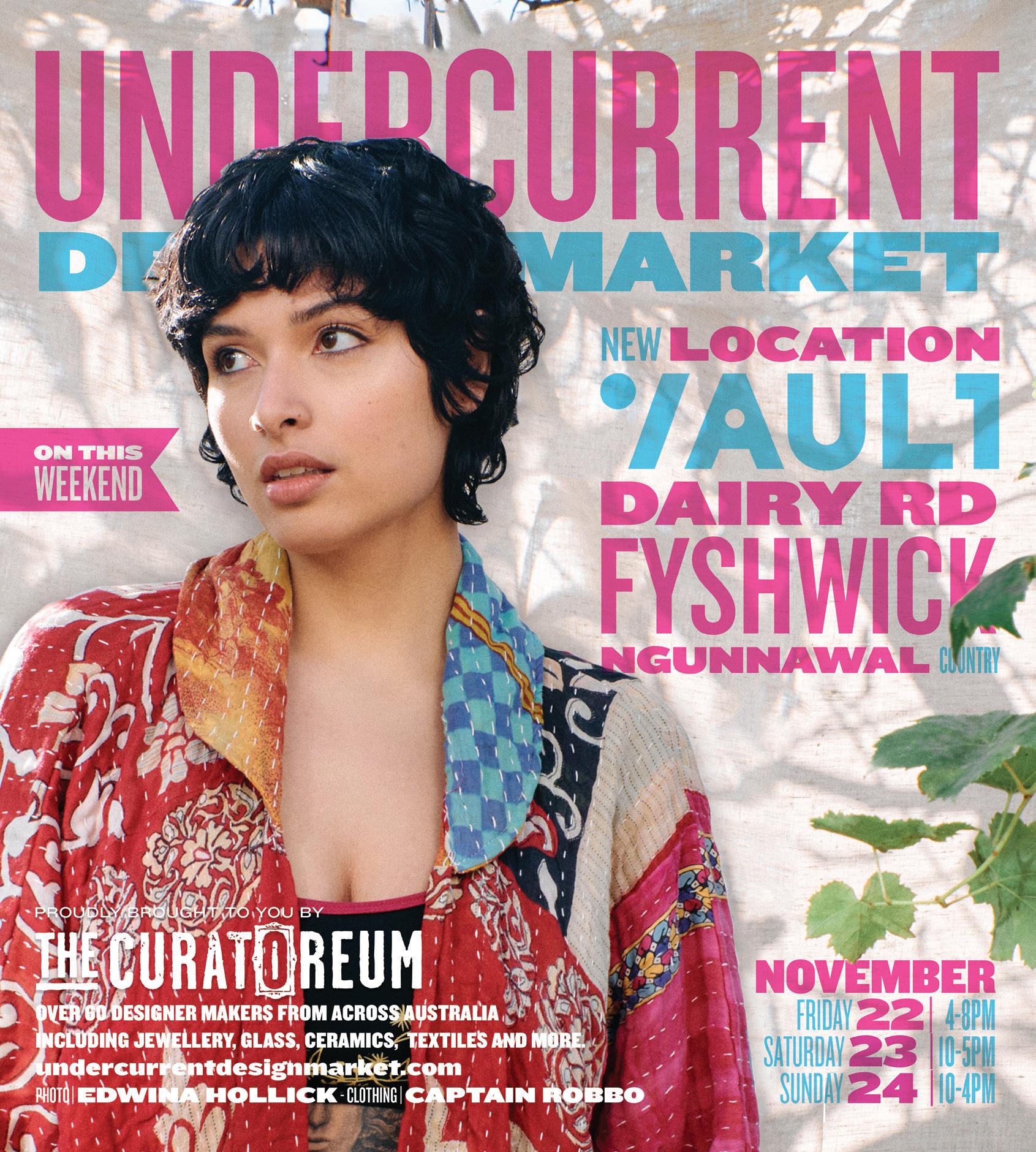For
Lessons in how to win an election ANDREW HUGHES

The new human right to challenge heat islands
BEATRICE BODART-BAILEY

Yum,


The Chief Minimaliser has a message for the kids KEEPING UP THE ACT

NOVEMBER , 2024



For
Lessons in how to win an election ANDREW HUGHES

The new human right to challenge heat islands
BEATRICE BODART-BAILEY

Yum,


The Chief Minimaliser has a message for the kids KEEPING UP THE ACT

NOVEMBER , 2024


Jim Adamik plays Bottom in a new production of Shakespeare’s hilarious Midsummer Night’s Dream

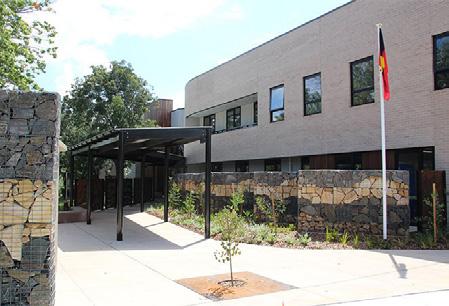

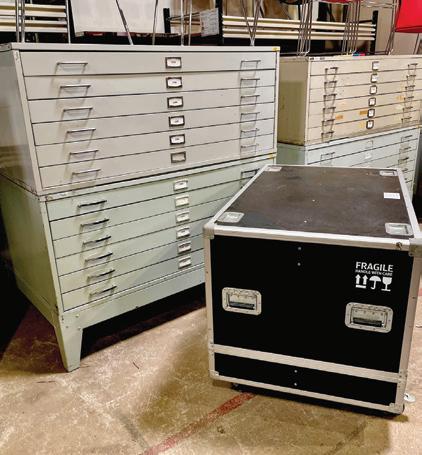




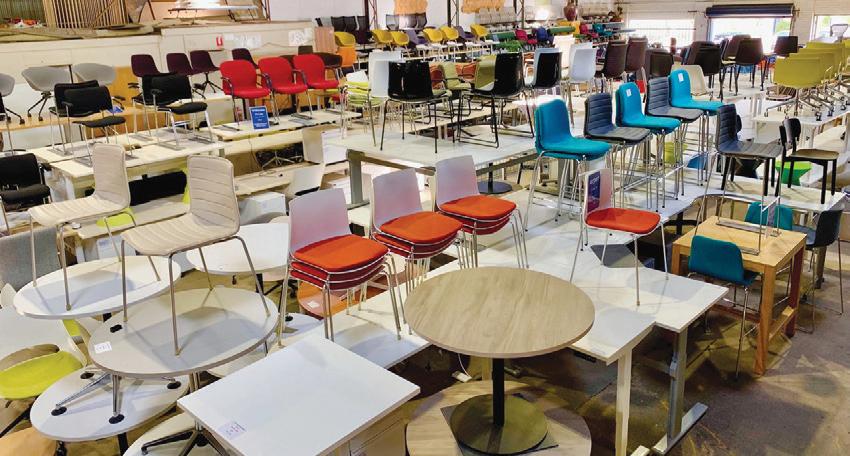

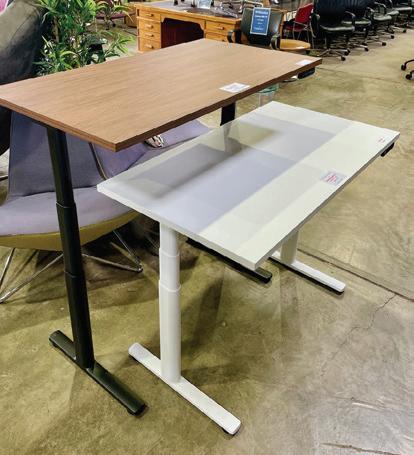




By Elizabeth KOVACS

Canberra’s Dragons Abreast is the longest-running breast cancer survivors’ paddling team in Australia.
It’s celebrating 25 years advocating for breast cancer awareness and thera peutically paddling a 22-seat dragon boat.
“It’s a support group without being a support group,” said breast cancer survivor and club event co-ordinator Jeannie Cotterell.
“We don’t talk about cancer very often.
“‘You have cancer’ is a really inter esting three words to hear, and you know that the people around you have all heard those words and know what that feels like.
“We don’t talk about it a lot, but it’s almost like a safety blanket.”
The most important thing, she says, is that members know they are them selves, and not their diagnosis.
Discovering a lump and receiving a breast-cancer diagnosis in 2014, Jeanie Cotterell’s life forever changed.
“I was 37,” Jeanie said.
“You’re not told to check out these things at that age.”
“Frog” Harris, owner of Songland Records at Cooleman Court, Weston, has just kicked in $9180 for the RSPCA, the proceeds of this past year’s ongoing, instore sale of donated music and movies. He’s been doing it for 15 years and reckons the total donations to support the animals at the RSPCA’s Weston shelter are more than $70,000.
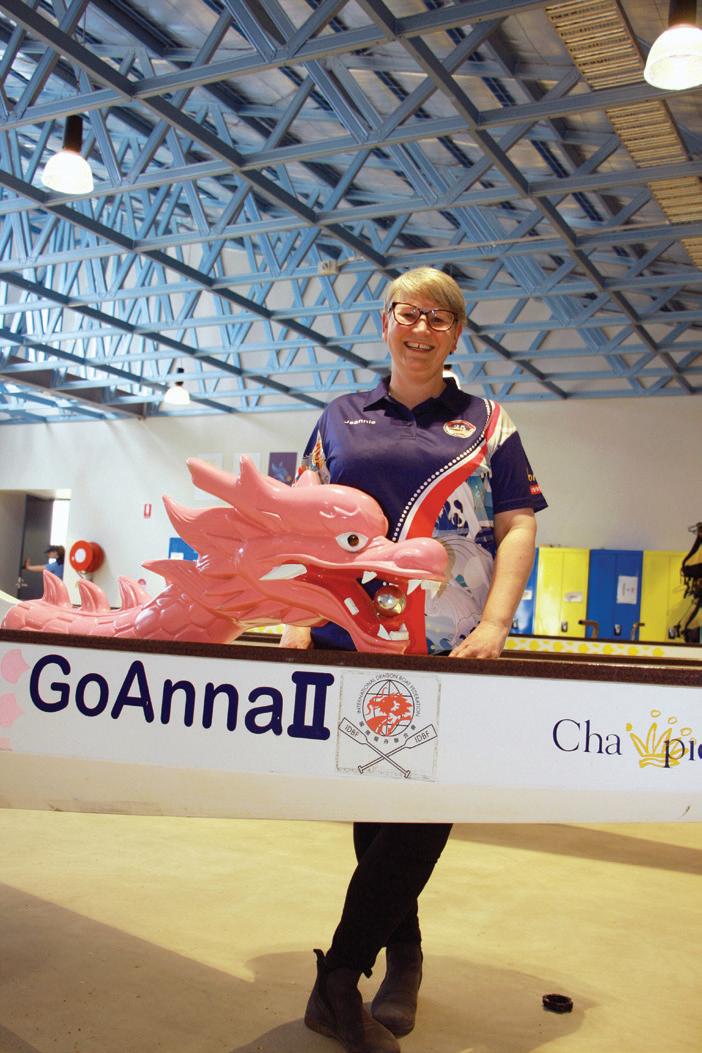

The 35-year-old Victims of Crime Assistance League (ACT) Inc is members for election at its AGM at 1 Iluka Street, Narrabundah, 6pm on
November 26. It provides a range of free support services for victims of crime for the ACT and region. Call 0439 959410, preferably by November 24.
Relay for Life Team, The Bold Bandannas, is promising lots of Christmas fare – puddings, hampers, cakes, rum balls and shortbread – at its stall at the Harmonie German Club, 9am-1pm, on Sunday, December 1. More from 62310761.





and eager to spread awareness of the good that Dragons Abreast does for breast cancer survivors.
“There’s a moment that happens at the end of treatment where all of the doctors have gone away and there’s not that much support left,” said
“It’s that moment that can feel awful, and we want people to know that in that moment: here we are.
“We don’t mind if people get tired of us talking about it because we don’t want people to go through what we
Twenty five years ago a Canadian doctor was in Canberra for a presentation of research he’d been doing into the treatment of women post breast cancer surgery.
“The accepted wisdom at the time was that once [you’d] had surgery, you couldn’t do too much because it might exacerbate the risk of lymphedema,”
The doctor, Dr Don McKenzie, had challenged this theory by starting a dragon boating club named Abreast in a Boat in Canada with 24 breastcancer survivors. Finding a positive result in healthier and happier women, Dr McKenzie inspired local Anna Wellings-Booth to start a Canberra version of AIAB.
Initially called Tickled Pink, Anna and Michelle’s dream turned into Dragons Abreast Australia.
In the past month, Dragons Abreast Canberra, alongside eight other dragon boating clubs, have moved into new facilities on Menindee Drive alongside Lake Burley Griffin.
The Dragons Abreast boat can be easily spotted in the water with a smattering of pink scales and a striking pink figurehead and tail, named GoAnna II in honour of founder Anna Wellings-Booth.
The team trains three days a week all year round, and continues to steadily grow.
Now sitting with 75 members (and counting), the team hopes to get another pink boat on the water soon.
It regularly travels across the country to regattas, recently returning from Tasmania alongside 200 other cancer survivors.
To mark its 25 years, Dragons Abreast is hosting a social and corporate regatta, 7am-2pm, on November 23 to raise funds for boat care, life jackets, etcetera.
“Our goal is to have 500 people out on the water and 25 teams to celebrate our 25th anniversary,” said Jeanie. With a total of 30 teams registered and 28 full boats (each boat takes on 22 people), the organisation has smashed its goal out of the water.
Dragons Abreast Canberra Social and Corporate Regatta, 15 Menindee Drive, Barton, 7am-2pm, November 23.
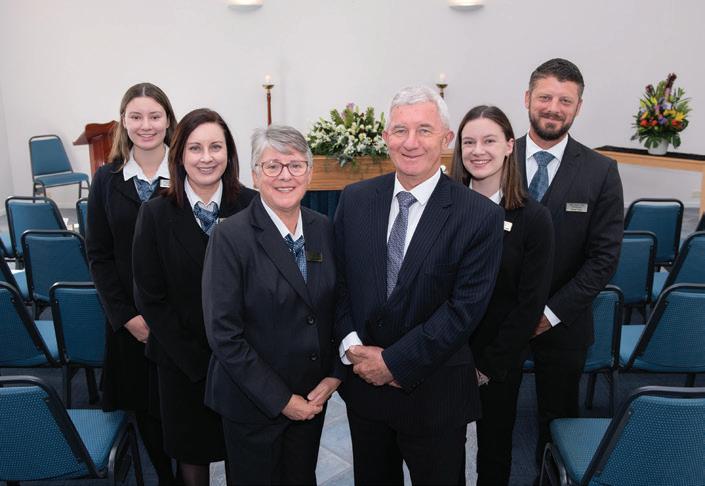

The second most interesting and watched election to many Australians after our own federal election is usually the US Presidential race.
This year was no different. Tomes will be written about the 2024 one, but for me these are the five most interesting lessons.
Control the narrative, control the campaign
Radio folk have one big fear. Dead air. Or when a broadcast is broadcasting nothing. Just silence. Political campaigns fear this as well. So, the way to stop this is to control the narrative. Forget the why. Just get something out there. Something people talk about. For whatever reason.
Donald Trump’s team was brilliant at this. And Labor in Queensland and here in the ACT did their own micro versions. Taking up space in the campaign means that there are little gaps for opponents to get their message out, and usually they talk about you anyway.
With early voting being so important now, even the last week ad spend does not save them. The Democrats spent $US400 million more and still didn’t win.

The most successful ad for the Republicans? Anyone guess? It was the one on how they would remove income taxes from social welfare payments and tips. Wait a minute… are not they the base for the Democrats? The low waged and people down and out. Reinforcement of this policy came via messaging on immigration and defence, which themselves backed up the central brand of the party and Trump.
Kamala Harris struggled on a platform that was mainly, I will not be Donald Trump, which became more and more like an ad for her not listening to her own base, which her opponent was.
Take a walk from Parliament House to Canberra Centre?
Control the narrative. Forget the why. Just get something out there. Something people talk about. For whatever reason. Trump’s team was brilliant at this.
The media landscape is constantly changing. If you really want to understand political campaigning in 2024 do the following: watch a Mr Beast video. Then go over and listen, all the way, to a Joe Rogan pod. Still make no sense?
You must move away from logic sometimes in the modern era. Sounds counter intuitive, right? But pods, once seen as outdated and too slow, are definitely back in and allow people to hedonistically consume media away from prying and judgemental eyes. But gender is not about one gender either. Trump’s team knew this and weaponised new media to its fullest (and most effective) extent using the big-name celebs with those
he needed to get out and vote.
Tried here? A bit in 2022 and the Voice, but expect more in 2025.
It is behaviour change, not politics
Political campaigns are in essence behaviour-change campaigns. You need to keep the base solid, but also win over the undecideds. Trump’s campaign has upended some traditional political theory because all they really want is your behaviour to change.
They are not necessarily after a long-term relationship, they just want to do whatever it takes to get your vote. Within reason.
This is where it gets grubby, but what they found in 2016 works well in that scenario is not to use positive messaging to do that, but to make you angry. Really angry.
Of course, good thing is we have the brand hero you need to save the day/ wage/neighbourhood/you.
This has been tried in Australia before, MediScare in 2016, then death taxes in 2019, and an iteration already in 2025 with Labor being the “builders” and Dutton “the destroyer”.
Culture and society are different here so, as noted, it becomes hit and miss, but as 2016 and 2019 showed it
can and may work.
Leadership = Brand
Harris was far too restricted in her policy approach because of fear over upsetting her current boss.
Clearly, she needed her own policies, built around her own brand. And at least a year before the campaign. Lessons for us? Do not wait. So, few leaders want to willingly leave office. Who would? Power. Attention. Control. Money. Influence. But they all go when the job does. Ouch! Yet not leaving enough time for a new leader to establish their own brand, with their own policies, personality and perception, is death. It happens here, too, and unless parties change candidates and leadership to keep the brand fresh then it will keep on happening.
Dr Andrew Hughes is a lecturer in marketing with the Research School of Management at ANU where he specialises in po litical marketing and advertising.
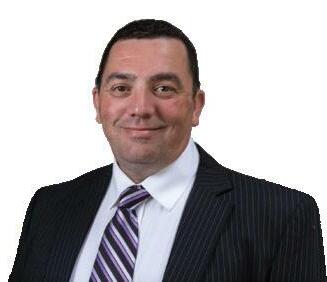
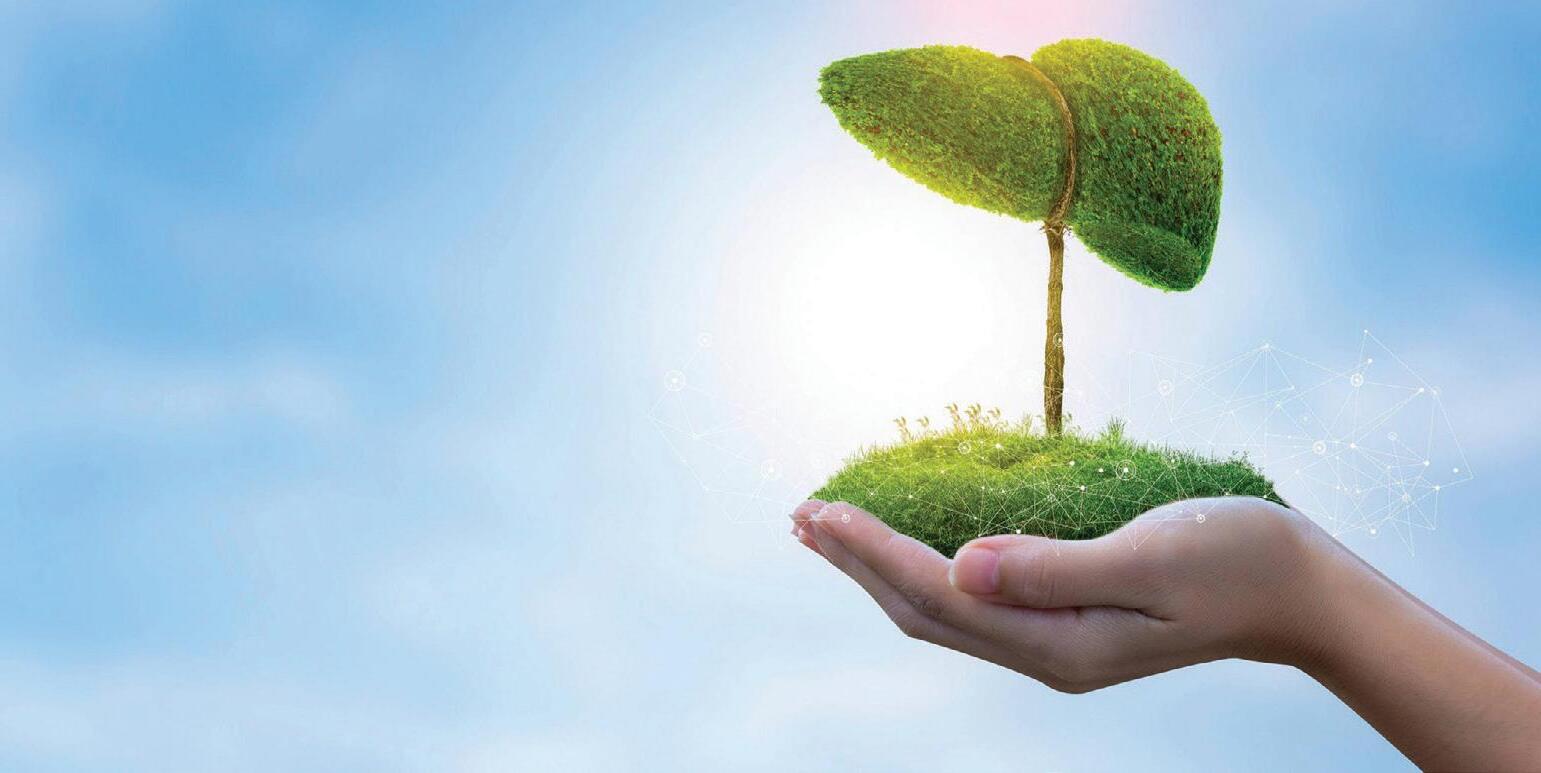







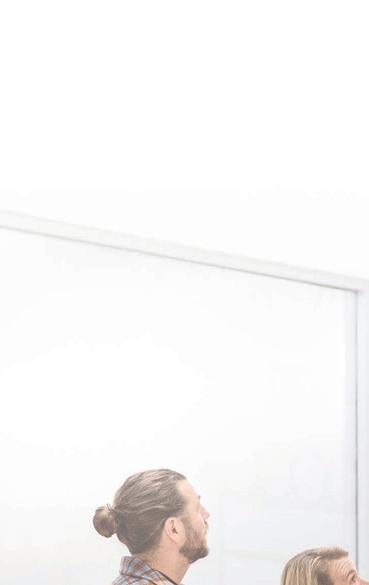



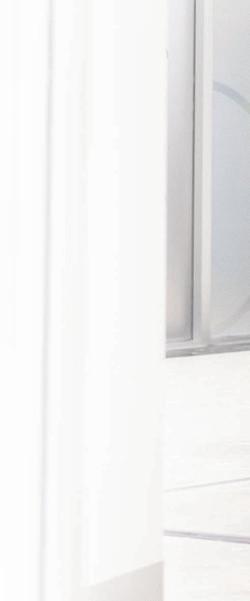





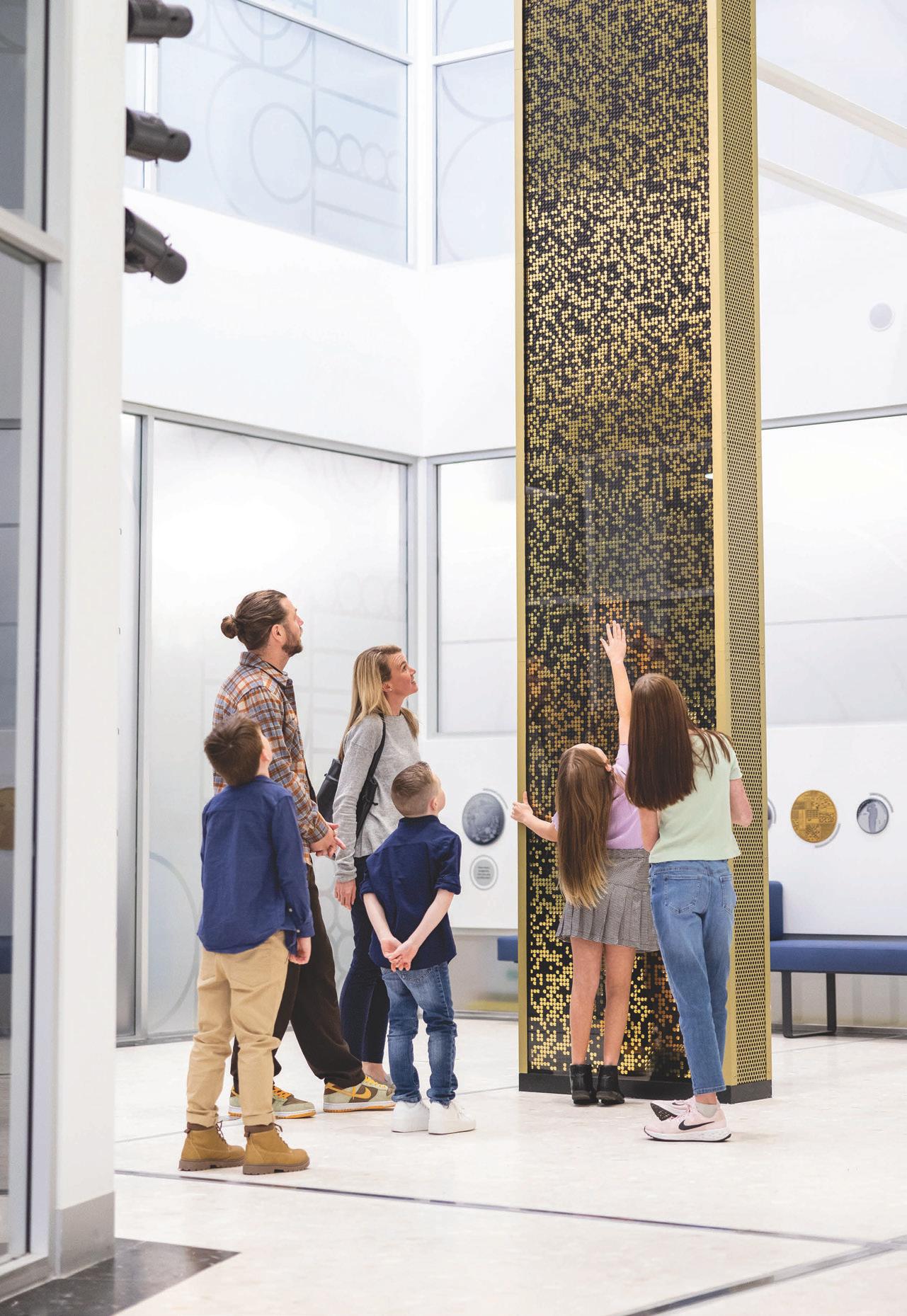
A question was posed to me while travelling in the Middle East recently: “But, what does the West really stand for these days?”
The question threw me somewhat, and left me a little perplexed about how I should answer.
The question was raised by highly educated Saudi Arabian health professionals, who had all studied at post-graduate level in the West. This made the question even more interest ing. The discussion went on to reflect on the West in the past. Democracy, equality, liberty and the rule of law were all mentioned.

My immediate reaction was that currently the West stands up for tolerance. Tolerance of different perspectives, of alternative attitudes, of different races, religions and sexual preferences. There are many more.
I was not so sure that this would be convincing for my colleagues as a good thing – but it is something that I personally value about the West.
Donald Trump was elected in the following week. It made me think even harder about what it was the West stood for these days. Democracy remains intact. President Joe Biden and Vice-President Kamala Harris conceded defeat. Preparations are underway for a peaceful handover of
power. Democracy remains intact. Tolerance was not a feature of the Trump election campaign. Rather the opposite. The Republicans received strong support with a campaign based on anti-immigration, intolerance of minorities and, to a certain extent, racism. However, what proved really interesting was the support from many African Americans and Hispanics, traditionally Democrat supporters, who voted for a change of government.
It did make me rethink tolerance
and the West. Philosopher Karl Popper identified the “tolerance paradox” in a post World War II tome The Open Society and Its Enemies.
He identified the paradox where tolerant values are eroded and exploited by intolerant ideologies. His concern was that the approach would “destroy tolerance itself through authoritarian or oppressive practices”.
There were many factors in the success of the Trump campaign. Cost of living was clearly a factor in the US election. The West still expects governments to deliver strong economic outcomes, and Trump has certainly promised this to the American people.
I did point out to my colleagues that it is our constitutions that allow the West the ability to look after its minorities. Authoritarian governments can certainly be terribly efficient, can build sound economic growth and bring about outstanding change. For those who are on the same wavelength as the autocrats, things can look rosy.
However, some minorities are invariably used as scapegoats to
ensure a common enemy. For these minorities or individuals, authoritarianism does not work well.
I thought it ironic that these Saudi men raised the issue of women. It is true that there are improvements underway for Saudi women. They are no longer required by law to cover their faces and hair. They are now permitted to drive cars (albeit with the permission of their husband or father). According to the World Bank, in 2023 in Saudi Arabia, labour force participation rate among female citizens is 34.5 per cent and among males is 79.9 per cent.
My colleagues referred to a 2022 documentary on Netflix with the title What is a Woman. The American documentary failed to get any straight answers. According to the official trailer, “political commentator Matt Walsh explores the changing concepts of sex and gender in the digital age, particularly the transgender rights movement”.
My colleagues found the exploration of these issues by Matt Walsh as reflecting confusion on the behalf of the West. It was seen as caving in to minority groups. We did not explore issues of homosexuality, transgender
or the cultural oppression of women. Maybe I should have asked “what is a man”? And pointed out that I am proud that the Canberra community has consecutively elected an openly gay chief minister to lead our territory. Even more importantly, it was not raised as an issue in the campaign at the last election. It is simply not relevant in a community that values diversity.
A fundamental value of the West is our tolerance of people’s ideas and actions – provided they are not hurting others. Despite the paradox, this basic value does need to be recognised, valued and protected. In the meantime, we must also continue to value and be vigilant to protect the fundamentals of democracy, liberty and equality.
Michael Moore is a former member of the ACT Legislative Assembly and an independent minister for health. He has been a political columnist with CityNews since 2006.



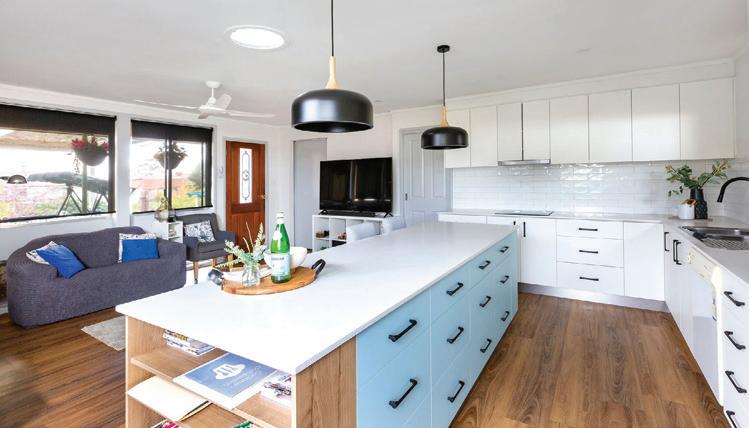

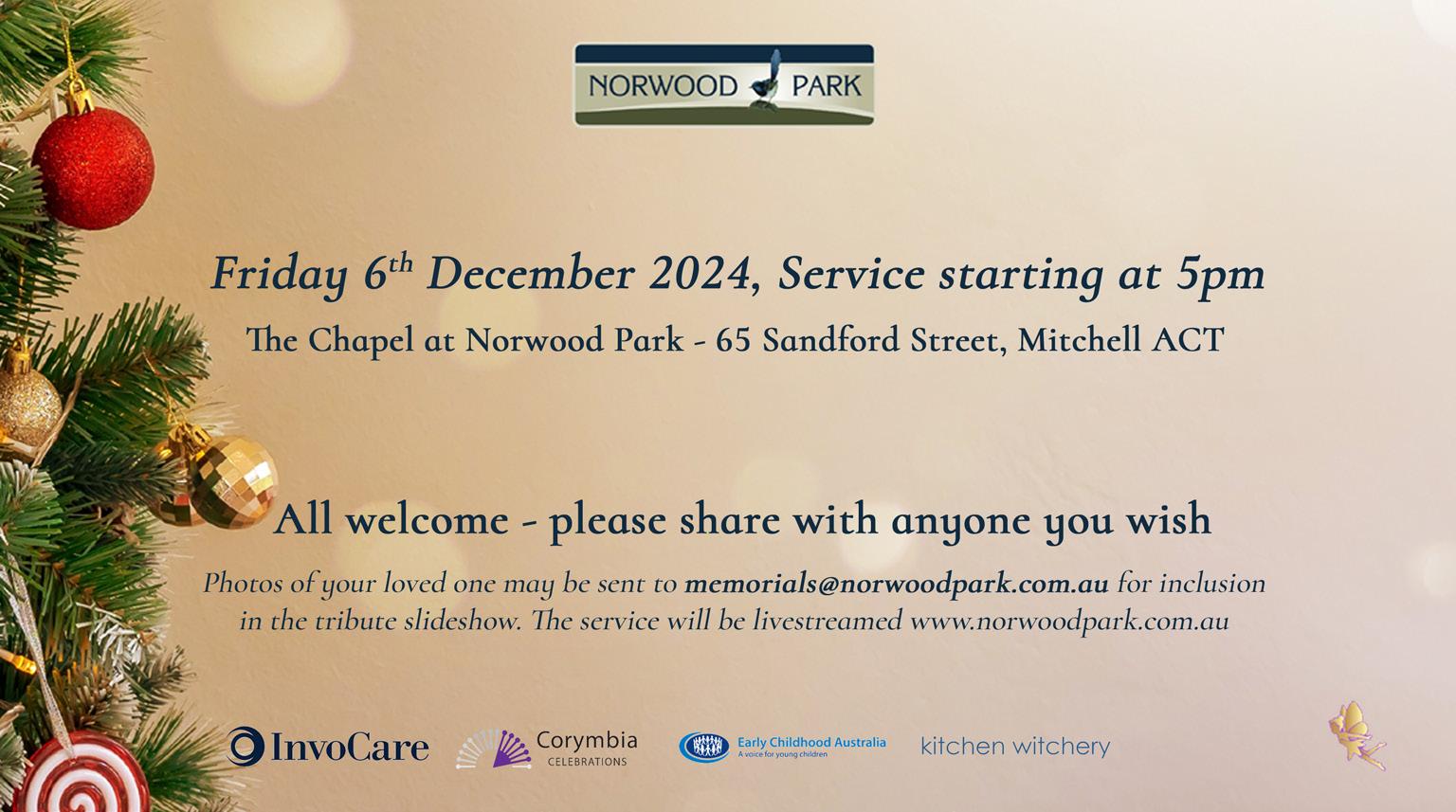



Published
author
NOEL BEDDOE
continues his occasional series on some of the things that make living in Canberra so wonderful.
It is not in every part of the world that you can go for a morning stroll and find yourself face to face with royalty.
It’s possible in Canberra – it happened to me in November last year. I went out one Saturday to pick up newspapers and get a coffee; walking past Timpson Park in Belconnen I saw a group of people gathered, and heard the most intriguing music.
I went into the park and encountered Her Highness Princess Angelika Latufipeke Yuku’aho, daughter of the king of Tonga and Tongan High Commissioner to Australia, there to provide the official opening to Canberra’s first festival of Tongan culture.
I went home to tell Vivienne what was happening and we returned. By now Princess Angelike was comfortably beneath a marquee, enjoying the performances that were taking place on a stage at the northern end of Timpson Park.
We bought some curry and rice from one of the many stalls and an enormous middle-aged man left the entourage of Her Highness to bring
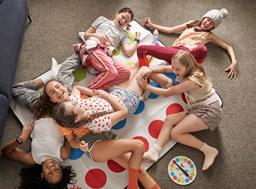
us some chairs to sit on comfortably in the shade to enjoy our food and the remarkable performances.
The festival was staged again this year on November 2, closest Saturday to Tonga’s national day, Novem ber 4.
Performers, most in traditional Tongan dress, took to the stage to dance and perform that remarkablymelodic singing native to Pacific Islander people.
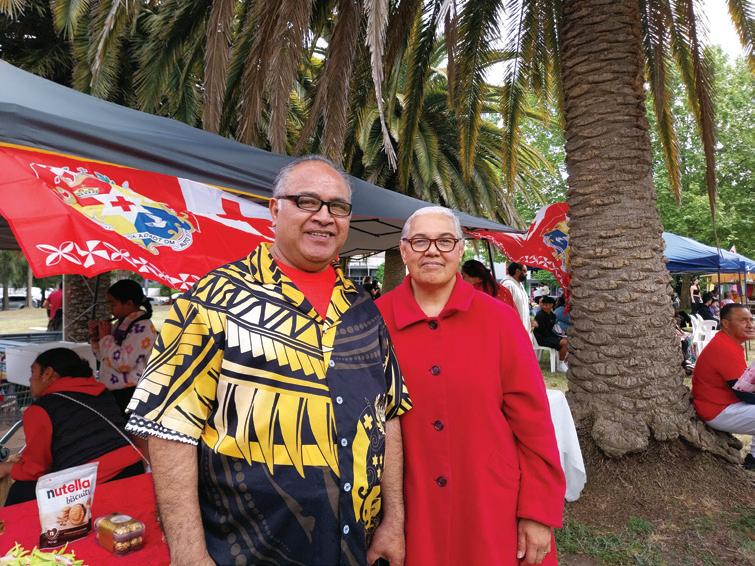
Festival organiser and driving force behind the celebrations, Ms Toa Takiari told me that some 15 performance groups took part, many from the ACT from as far away from Belconnen as Tuggeranong, several making the trip from Sydney.
“Some groups had more than 30 participants,” Ms Takiari said.
“We had to split some of them into two performances because they
wouldn’t fit on the stage; we were only able to afford half a stage so there was a limit to how many people could perform at a time.”
Thereby hangs something of a tale – Ms Takiari informed me that the entire activity was funded by individual commitment and by two donations of funds – one of $3000 from Fair Canberra (an extremely interesting organisation, of whom I had been previously unaware) and
$500 from the Belconnen Labor Club. Access Canberra made Timpson Park
“After requests, a lot was donated for the day, the sound system for example. We had to hire the outdoor seating. In years to come if someone had outdoor seating they could let us have for the day, that would be a very great help,” Ms Takiari said.
This year there were 20 or so separate stalls selling various craft items, woodwork, woven goods and the like, and foodstuffs varying from traditional Tongan foods and drinks to the sausage sandwich which, apparently, knows no regional barrier.
Tongan attendees were in their native dress as were almost all of the performers; some of the boys from The Brumbies turned up in their
Entrance was free. I asked Ms Takiari was it intended that this would always be the case?
“Of course,” she replied. “Our intention is to preserve and share that beautiful culture from which we come. Last year all stalls were made available to stallholders for free – we were determined that everyone attending would find prices for food and drink would be held as low as possible so that everybody could attend, have something to eat and drink and enjoy the performances in comfort.”
One of the greatest responsibilities? The clean up on Sunday morning to see that the park was returned to pristine condition.
One of the performers, a Tongan man from Sydney, originally spoke to us in Tongan, and it gave that thrill you get hearing the fluent speaking of an indigenous language.
He then sang in English, having firstly assured us of the little-known fact that, secretly, Louis Armstrong had been Tongan [the Louis Armstrong House Museum begs to differ saying he was born in New Orleans, Louisiana, August 4, 1901]. The man from Sydney then sang What a Wonderful World.
We were sharing a glorious latespring afternoon, the new season’s foliage was out in the established trees around Timpson Park ruffled in a light breeze, three generations of families sat together in glorious sunlight, proudly dressed in the traditional garments of their country of origin, and many of them sang along with those optimistic lyrics. Just in that moment, Gaza, Russia and the housing crisis were forgotten, it was easy to agree.
For information about Tongan cultural activities or to donate time, goods or funds to the Tongan cultural festival 2025 contact Ms Toa Takiari on pacificislandsc@gmail.com





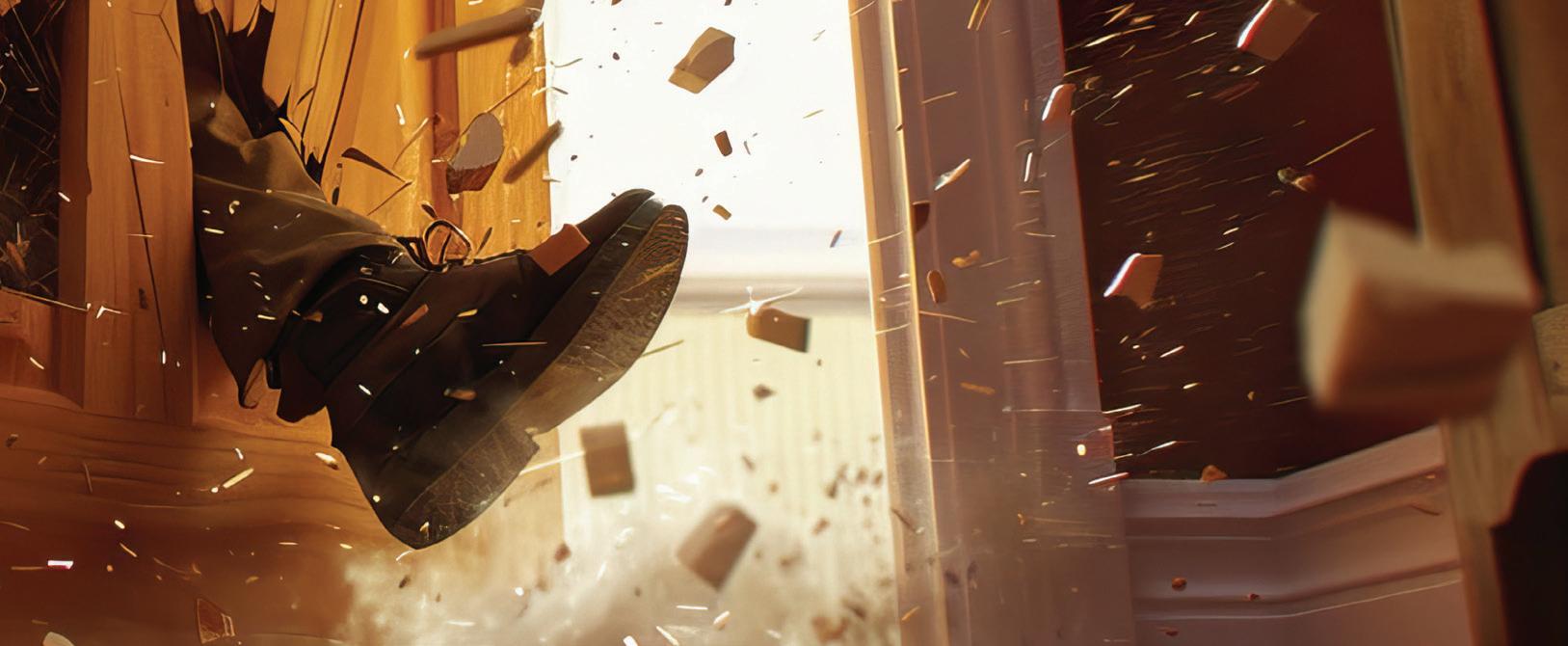



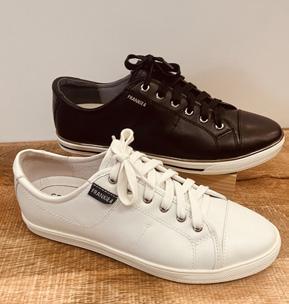


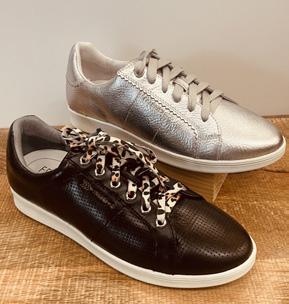





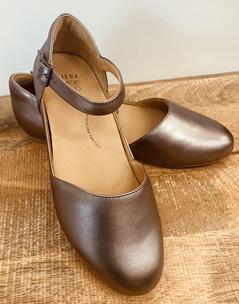

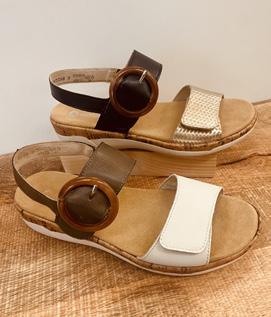
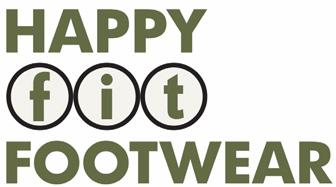



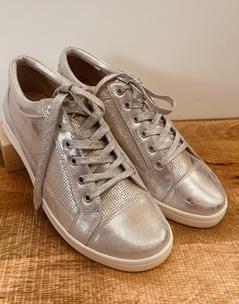

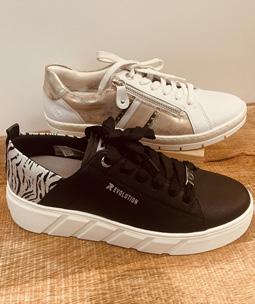



Among the bad news we receive there is, occasionally, a golden nugget getting little attention.
For instance, in July 2022, the General Assembly of the United Nations declared that “a clean, healthy, and sustainable environment is a human right.”
Just over two years later, on August 28 2024, the ACT government passed the Human Rights (Healthy Environment) Amendment Bill 2023 , providing statutory recognition for the right to a clean, healthy and sustainable environment for all Canberrans. This is an Australian first.
It is perhaps no co-incident that this new human right was established by the UN at a time when the speeches of its Secretary General Antonio Guterres increasingly show his frustration and anger at UN Climate Change Conferences (COP = Conference of the Parties of the UNFCCC) closing with little advancement towards the goal of stopping rising temperatures while the world is battered by an increasing number of natural disasters these extreme temperatures cause.
COP 28 last year in Dubai prides itself of having attracted some 85,000 participants including more than 150 heads of state.
We are told that: “COP 28 was particularly momentous as it marked the conclusion of the first ‘global stocktake’ of the world’s efforts to address climate change under the Paris Agreement.”
The stocktake, predictably, showed that too little was achieved in the last eight years. Whether the declarations of this conference will result in action is another question, especially with it hosted by a country living from the extraction of oil. This month’s COP 29 took place in Baku, Azerbaijan, where the world’s first oil well was drilled in 1846.
Some 160 years earlier, in 1684, when the Westphalian physician Engelbert Kaempfer explored the “eternal fires” of the Baku peninsula, he noted the unhealthy appearance of the population and attributed it to the noxious fumes of the fires.
At the time, flames were fed by natural gas spills, mud volcanoes erupted with a loud roar, and there
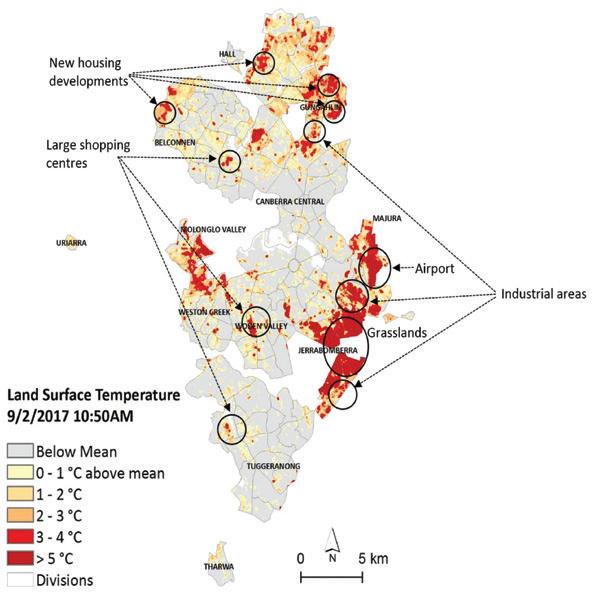
The CSIRO heat map taken in February 2017, by Landsat 8 thermal imagery, showing hot spots defined as departures from 35C, which is the mean land surface temperature for the area shown.
were fountains of black, evil-smelling oil, referred to as naphtha.
Much valued for the bright light it produced, the liquid was exported in sheep intestines loaded on donkeys.
The bitterness of the Caspian Sea’s water, Kaempfer ascribed to oil spilling from the seafloor.
Today this area is covered with oil rigs, on land and in the sea. As the precious liquid conquered the world, so did the pollution, causing the drama of climate change with temperatures threatening human health and even survival.
The extraction and burning of fossil fuels made possible unprecedented advances in all fields of science and lifted living standards in large parts of the world.
During this development, powerful international companies and financial interest groups formed. Like in the tale of the sorcerer’s apprentice,
governments have lost control of the enterprises they helped to create and welcomed. Like the American president elect, these multinationals promise a wonderful future, but take no responsibility for the harm they cause.
Temperatures are rising faster than ever before, with 2024 on track to be the hottest year on record.
Already in 2022, the CSIRO warned:
“Heat-related deaths are predicted to grow by 60.5 per cent or more across major Australian capital cities from 2020–50, but this is likely to be a conservative estimate. Recent research suggests that official records of deaths attributed to excessive heat in Australia are underestimated by at least 50 fold.”

What can the new Human Right to a Healthy Environment achieve in this dire situation? It would be over optimistic to expect that it could stop world temperatures rising. But wherever statutory recognition is given to this new human right, people are surely entitled to protection from urban planning creating temperatures higher than the average.
In 2017, the CSIRO produced a heat map showing the variations of temperatures in the ACT. Naturally, the airport and industrial areas had higher temperatures than average due to the large amount of concrete without the mitigation of vegetation.
But the same applied to shopping centres and new suburbs where measures to reduce the so-called urban heat-island effect could have been taken. With the large number of new constructions during the interim seven years, a new heat map is a matter of urgency to show what projects have increased temperatures, so past mistakes can be avoided in future planning.
The newly released ACT Microclimate Assessment Guide offers help for planning by showing how to calculate temperatures surrounding future constructions and how to reduce
them (the guide, unfortunately, still contains the outdated 2017 heat map). With the new human right, a temperature assessment must surely become obligatory for all development applications, so no Canberrans discover that temperatures in their neighbourhood have suddenly climbed to unhealthy levels due to constructions in the vicinity not mitigated by vegetation.
Some of the many questions raised by the introduction of the new human right will be discussed by the ACT Human Rights Commissioner, Dr Penelope Mathew, at the Inner South Community Council Forum, Eastlake Football Club, Griffith, 7pm on Monday, November 25. Details and registration at isccc.org.au
Historian Beatrice Bodart-Bailey is an honorary professor at the ANU School of Culture, History and Language and an emeritus professor of the Department of Comparative Culture, Otsuma Women’s Univer sity, Tokyo.

Our comprehensive range of services is designed to guide you on your journey toward personal and professional growth, transformation, and success. With a team of experienced coaches and experts, we are committed to providing tailored solutions that meet your unique needs and aspirations:
• Personal Coaching
• Business Development
• Career Coaching
• Workshops and Training
• Community Engagement admin@sageadvice.au
Bringing purpose-led businesses and community leaders together to build relationships for positive change in business and the world.


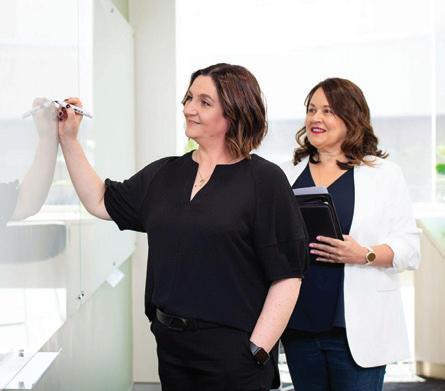
‘We wanted to make sure that there was now a place for the community to gather again’
Nestled in the heart of Bungendore, The Malbon creative and community hub is about to celebrate almost two years of operating.
Co-owners Sally Hieatt and Meg Jeffreys say they are proud to see their corner of Malbon Street become “a hive of community activity and laughter”.
“We’re creating a community within a community,” says Sally.
“The idea of The Malbon came about when we – and our husbands – recognised there was a need to revitalise the entry of the village.”
The (now) Malbon building had been vacant and derelict for a long time, which Meg says was frustrating the locals as it was the wrong entrance to Bungendore.
“The Malbon’s new look provides passersby with a mix of sage green and crisp white. The lush green nursery with a wonderful collection of pots and garden art also sings from the road,” she says.
“The location once thrived with an antique dealer and was a destination that locals and travellers both liked to visit. Sadly, that attraction dried up after the building was vacant for several years.”
Constantly passing the closed building on the way to and from work and school dropoffs, Meg and Sally say they realised that Bungendore desperately needed the space to be revitalised and the idea of a community hub was borne.
“We knew of a few creative locals who were interested in a space but weren’t enough on their own.,” says Sally.
“We often commented that it would be the perfect opportunity for someone to do a collective of some sort, which would provide locals with the opportunity to showcase their own works.”
Little did they know that six weeks after this idea had been hesitantly voiced, the building would become theirs, their placeholder name, The Malbon, eventually sticking as a permanent name.
“It was a perfect choice in the end,” says Meg. “It meant we weren’t trapped by what we sold and the services we provide for the community.”
The first thing on their to-do list was to fix the ramshackle building to ensure the community knew they were up and running for business.
“After the lack of activity over the past few years, we wanted to make sure that there was now a place for the community to gather again,” says Sally.
Opening with a few tenants who sold antiques, gifts

Sage green and crisp white, The Malbon… “We wanted to provide an opportunity for local artisans, and we really believe we’ve achieved that!” says Sally.
and homewares, The Malbon soon reached the attention of the community, with many creatives placing their unique and often hand-made wares in-store.
“We now have over 20 artists and are constantly expanding our crew,” says Sally.
“We wanted to provide an opportunity for local artisans, and we really believe we’ve achieved that!”
There are a mix of vendors, to some like Meg and Sally it is a business on the side.
Many of their vendors take it in turns to serve customers at the counter, which Meg says provides an important opportunity for visitors to meet the vendors and makers.
“It also provides purpose for our artists,” she says.
“Many of our creators are retired, and we love giving them the opportunity to work on something creative each week and have it appreciated by the wider community.”
The giant warehouse includes a gallery, in-house florist, food van, nursery and three large themed rooms with homewares, photography, timber and ceramic work, gifts, books, saddlery and a providore.
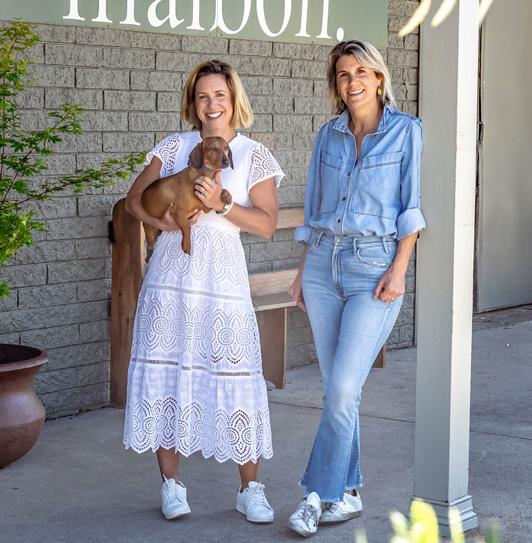
Beside the building and humming with music sits Eric’s food van, a local hospitality business operating within Bungendore for more than 17 years providing hot and fresh food, utilising homegrown ingredients from The Malbon.
“It’s a delicious takeaway and customers love grabbing a coffee and perusing the Malbon,” says Sally.
“And it can also be enjoyed sitting on the tables scattered around the nursery.”
Tucked behind the gallery, Meg’s husband Will had the idea to create a room within the Malbon dedicated to Lake George research.
“It’s one of the most studied lakes in Australia but has no dedicated space on its history,” says Meg.
“The Lake Room at The Malbon is the only Museum of Lake George.”
“It’s a community driven adventure that features an extensive multimedia history of photographs and mementos celebrating the lake.
“We also have a space inviting the community to add their own history and experiences.”
Dog friendly inside and out, Sally and Meg

encourage visitors to make memories at The Malbon and hope to see it become an important destination for Canberrans on day trips or pitstops on their way through to the coast.
Supporting local wherever possible, their in-house florist provides pre-made or made-to-order bouquets from her micro-flower farm at Bungendore, adding a touch of whimsy to their bright spaces.
“We are always striving to evolve and support smaller retailers, local artists and artisans,” says Meg.
With Christmas coming up, the girls are now busy preparing for another meet-the-maker evening along with late-night shopping and live music. Dinner is also sorted with Eric’s food van. Meg says it’s the perfect opportunity to get Christmas shopping sorted “in a lovely relaxing environment”.
“Bring your friends and kids along on Thursday, December 12, for a great night out,” she says.
The Malbon, 2 Malbon Street, Bungendore. Call 0475 421 493 or visit themalbon.com or themalbon_bungendore on Instagram
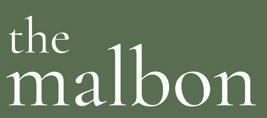
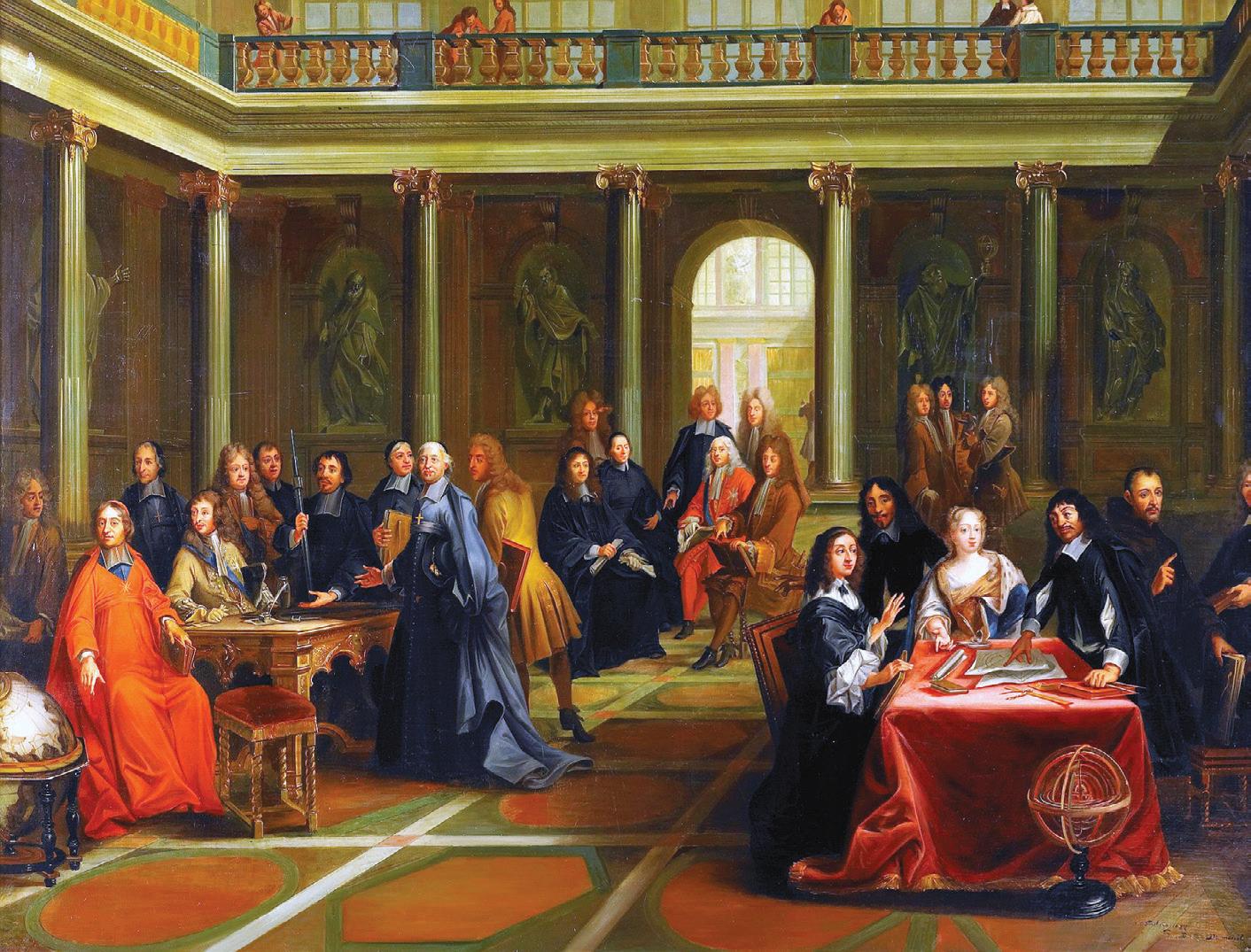
My wife discovered a catalogue filled with goodies and, once she ordered something, that damned internet has been sending her Christmas ‘suggestions’ for months.
smell in the history of the world.
It didn’t matter that we were celebrating on the front deck, our neighbours on both sides complained and one of the girls nearly threw up… on the prawns!
Anyway, by May she’s making little noises about the charms of Christmas in July at Katoomba, which I have resisted manfully these several years and will continue to my dying breath.
Not for long. Three days later it was the same formula, and two days after that… before I twigged. She’d discovered a catalogue filled with goodies and, once she’d ordered something, that damned internet had been sending her Christmas “suggestions” for months.
They use fierce, little algorithms. They take note of what interests you and then spread a veritable banquet – a Swedish smorgasbord – of goodies before you. Who could resist? Well, I could. But they know that already. No, no, their target is elsewhere and here’s the clue – they are all connected to Amazon! No wonder Jeff Bezos is one of the richest men in the world. How could he lose? He’s got Amazon, the mighty tribe of strong women who absolutely take their cue from Queen Christina.
noises. Some of them even play cheesy music off-key each time you open them. They are so elaborate. This year it wouldn’t surprise me if some rapper released a ghastly card poem on a Christmas theme: Hey, dat Jesus in d’manger; He lickin’ lamb juice, dat’s da danger.
One awful year, I gave a bottle of Cointreau to a son and three pairs of men’s underpants to his fiancee (don’t families have long memories for the rare little mistakes of the paterfamilias?).
My dear wife has an entirely different view. She is a natural and say: “Just what I wanted. How did you know?”
However, this year her arthritis has meant she hasn’t been able to do the usual expeditions through Canberra’s shops for that perfect present for everyone. But that’s a double-edged sword. The first clue was when she said: “I’m expecting a delivery today. You’re not to look at it.”
For her, Christmas planning begins in February. It has taken that long to decide just how to improve on last year’s effort and stop chuckling about the naughty son who gave his brother a joke tin pressie containing the worst
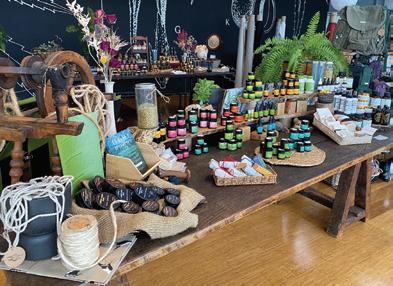


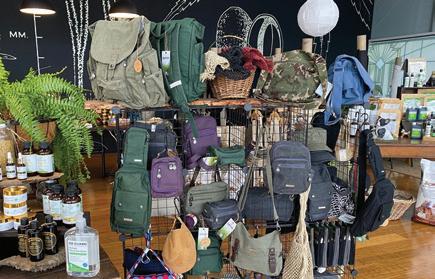

I was writing at the time and it drifted over my head.
“I shop, therefore I am!”
robert@robertmacklin.com


Physiotherapist Emil comes to us with a wealth of physiotherapy experience and knowledge from the public hospital system and also private practice. Emil works closely with our team of Exercise Physiologists on a coordinated approach to improving your pain and overall wellbeing. Emil has a special interest in neurology and improving the lives of people living with neurological conditions. He’s also mad keen on soccer and will support you with all sports related injuries and injury prevention.
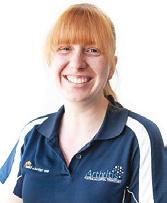
Sophie has post graduate qualifications in hydrotherapy, and as a non-sports centred Exercise Physiologist, helps clients who struggle with engaging in exercise due to a lack of sports participation. Sophie’s goal is to improve clients health via our hydrotherapy program, gym instruction and in-home visits. Sophie also is known for her passion for working with children.

Sarah believes that exercise is the best medicine. She is an Accredited Exercise Physiologist with her degree in exercise physiology and rehabilitation. Previously Sarah was a swim teacher, personal trainer and an allied health assistant in the hydrotherapy field.

Jarrod is an Accredited Exercise Physiologist who graduated from the University of Canberra in 2024.
He has a passion for wanting to help those in need and aims to provide the best possible treatment and advice to each and every one of his clients.

Blake has expertise in improving clients mobility and decreasing their pain through appropriate exercise. Blake delivers our ‘My Exercise’ program, targeting the relief of lower back and sciatic pain, shoulder and upper body concerns as well as leg, hip and ankle interventions – for those who do not qualify for physiotherapy-led GLAD programs. Blake provides individual & group exercise for younger people with a disability. Blake treats clients in-clinic or via our hydrotherapy program as well as attending your gym with you.
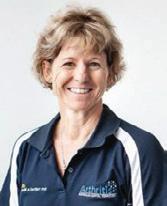
Jacqui has a particular interest in hip and knee osteoarthritis. Jacqui delivers the GLAD program designed to reduce the need for joint replacements, or if a joint replacement is unavoidable, to prepare you thoroughly for surgery and recovery for day to day tasks. Jacqui is studying towards a PhD in the outcomes of the GLAD program.
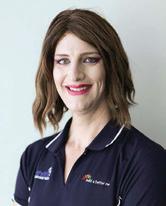
Holly is a former sports journalist who believed so strongly in the power of exercise to heal and nurture that she undertook her 4 year degree in Exercise Physiology. Holly is be able to work with people directly to support them through their pain journey and regain independence and a joy for living again. Holly provides one on one and group exercise classes both on land and at our hydrotherapy centres to support people to gain freedom from chronic pain.
• Occupational Therapy – Assistance with the planning and modification of your home, workplace or car. Applications for NDIS, the Disability and Housing Support Pension, and also driving assessments.
• Physiotherapy – including the GLAD program for knee and hip osteoarthritis, sports injury prevention and rehabilitation, and pain condition support.
• Exercise Physiology – Individual exercise prescriptions, small group classes to increase strength and improve rehabilitation, strength and balance classes, hydrotherapy support.
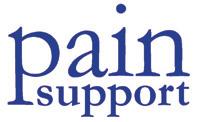
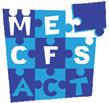
if there’s ever
I picked up a book the other day, on account of having been to the Lifeline book fair at the Fyshwick markets the day before and bought six books but donated 11.
This put me in front in the one-in, one-out balance sheet so, without guilt, I bought a book of cool, old poems.
Hearing things for the first time is special, but getting them in context for the first time is perhaps even better. This particular book’s conceit was that there are a hundred poems here in English that you don’t think you know, but you actually do.
And there were a couple from Ted Lasso by Walt Whitman and Philip Larkin (sound like “they tuck you up, your mum and dad”); The Highway men as read by Anne of Green Gables, and “Stop all the Clocks”, John Hanna’s oration in Four Weddings and a Funeral that elevated that movie into something more than just a showcase for Hugh Grant’s gravity defying fringe.

“The idea that I don’t have to retire from work, enrol in an English degree and get permission from society to write a poem is more exciting than ELO announcing a world tour of Canberra.”
Hodo saves lives. I have never once heard him or any of hundreds of new arrivals in Canberra ask what their country can do for them. They give and give, and live their gratitude in a way I’m too selfish to.
his way through the alphabet in the empire-building caper) to make a buck and returned embittered and distressed at his nation’s behaviour, in his cardboard-soled army boots, filthy bandages and missing a kidney.
My buddy Hodo is from near Albania, one of the amazing migrant flocks Australia constantly takes in, and in 2020, we both lost uncles to covid in those respective countries. Education and opportunity, opportunity and education. Neither of us lost uncles or kidneys in Australia.
from trees.
Part of that joy comes from loved tunes, and I love the fact that some famous songwriters such as Bono couldn’t read music.
I had the incredible joy of teaching music theory on Tuesday afternoons to my hero Doc Neeson, using the songs he’d written himself. His classic Am I Ever Gonna See Your Face Again was never used by the nuns when they showed me what a perfect cadence was. Shame, they had the lungs for it.
It always stuck with me that I could write a pop song ‘cause they could, but never the poems I loved. But this here book says that Tennyson, Auden and Dylan Thomas rattled off some of these belters on the backs of envelopes just when they felt inspiration hit. This is a game changer.
for stealing your health; a nation for rejecting your kind; cruel fate for marking your card. How do you get that strength to do that?
From the opportunity a new nation gives you, a nation with respect for you and each other. How do you repay them? Well you don’t have to. But if you want to – be the best you.
Hodo saves lives. I have never once heard him or any of hundreds of new arrivals in Canberra ask what their country can do for them. They give and give, and live their gratitude in a way I’m too selfish to.
And if there’s a poem inside you –write. There’s probably someone in your past who loves you, and made immense sacrifices, so you could take your best shot at whatever makes you happy.
In fact, there’s plenty of great stuff here that connects us through our popular culture, our parent’s quirky interests, or even the titles of our favourite films (from The Grapes of Wrath to No Country for Old Men) to old, beautiful poems.
Makes me think of a lot of things to
be grateful for, really. Our wonderful whimsy columnist Clive Williams wrote recently of Albania. The only connection I have with that country is how it didn’t rain in Sicily in the mid-1930s and my sharecropper grandparents had trouble feeding the 17 kids.
Nonno went to Albania and Abbyssinia (Mussolini was working
Hodo’s a brilliant surgeon who saves kidneys and lives every day and his stats on rescuing prostates are seriously better than mine for books the other weekend.
All Hodo and I ever got in Australia was a free education, love, respect, and more shots at a happy life than anyone of our species has had since our earliest grandparents came down
It’s craft, sure, but it’s also what’s in your head and your heart right now. This minute. The idea that I don’t have to retire from work, enrol in an English degree and get permission from society to write a poem is more exciting than ELO announcing a world tour of Canberra.
Where does kindness find its way into this? Forgiving a silly dictator
Antonio Di Dio is a local GP, medical leader and nerd. There is more of his Kindness on citynews.com.au
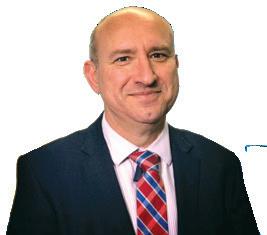
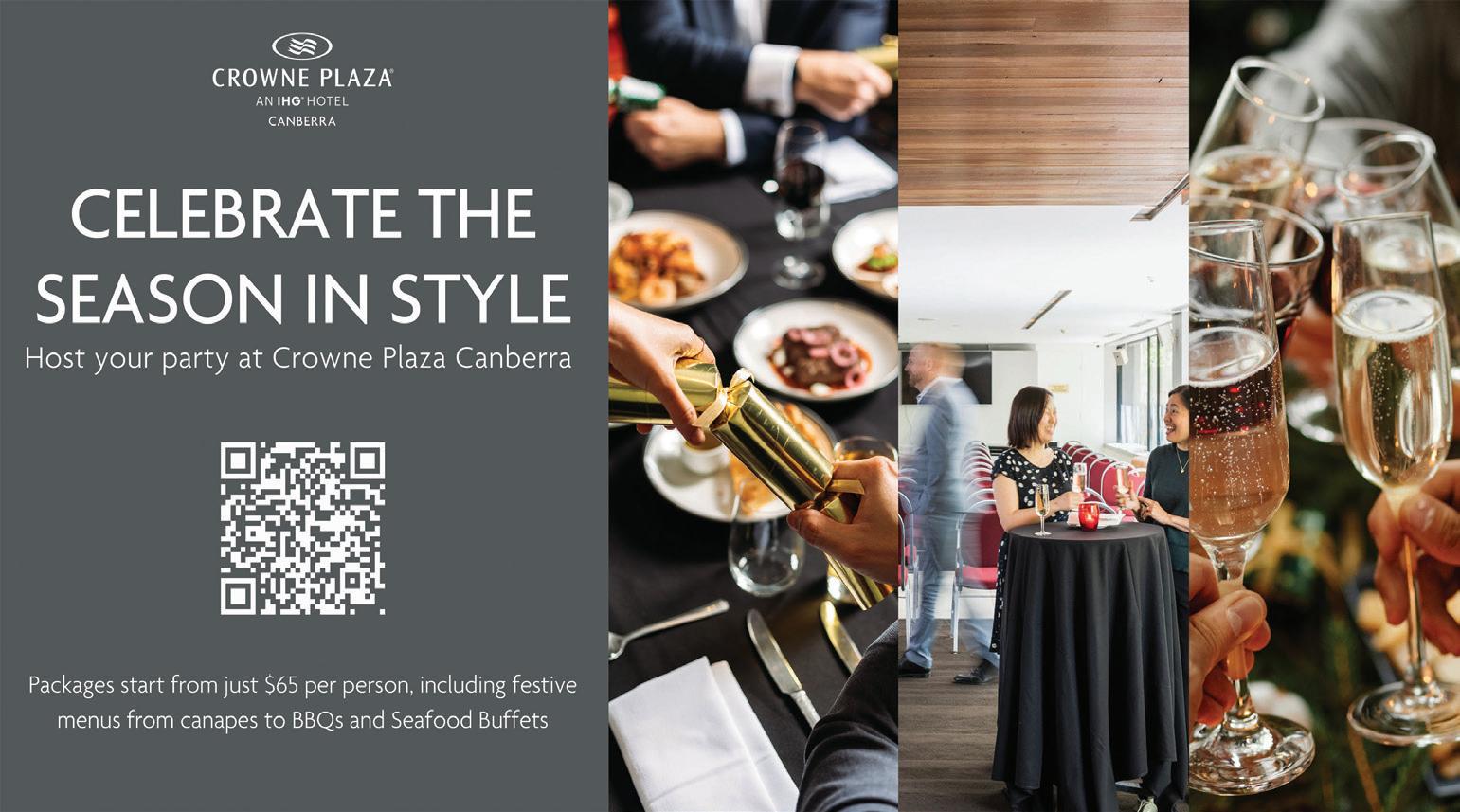
Urban consolidation policies aimed at increasing the share of housing demand accommodated in established areas have been central to Canberra’s planning since the early 1990s.
The success of the policies is reflected in the reduction in green fields development and the increase, between 1996 and 2021, in occupied dwellings (predominantly apart ments) in north and south Canberra from 23,400 to 36,900 and the associ ated increase in the population from 61,500 to 92,800.
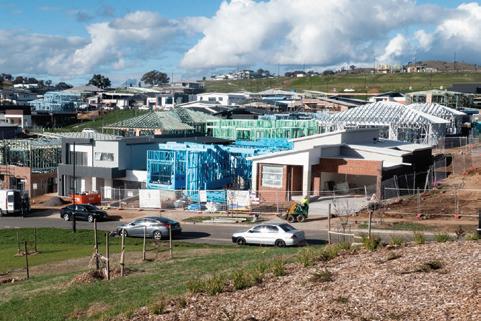
The policy’s most recent iteration, 70 per cent of housing demand to be accommodated in established areas, is supported by a land-release program directing that multi-unit dwellings will be 89 per cent of new dwelling supply.
The increased emphasis was made with little analysis of its economic, social or environmental consequences or housing preferences.
There is a significant undersupply of detached dwellings as reflected in the increased price differential between multi-unit and detached dwellings, the high demand for the limited supply of blocks released by ballot by the Suburban Land Agency, the increased development of car-dependent detached blocks in surrounding NSW and the high prices for
serviced land, in the order of $600,000 to $800,000, in Denman Prospect, Jacka and Whitlam. Such prices are unaffordable to many households.
Evidence of the detached house preference of many Canberra households is found in the 2015 Housing Choices and Community Study undertaken by Winton Sustainable Research Strategies. More recent research by Infrastructure Victoria (Our Home Choices Report, 2023) identified a “notional ideal home” shared by many households – a three or four-bedroom detached house with secure parking, in an established suburb close to family and friends.
In a survey, 6000 households were asked about the type of home they
would choose if they had to move, factoring in current house prices and their household budget.
Most households strongly preferred detached houses over apartments, particularly those who are looking to buy a home. Location, the number of bedrooms, and the number of car spaces also factor into housing decisions, but were found to be less important than the type of home.
Low-to-moderate income households could not afford the “ideal home”.
Westpac’s 2024 Home Ownership Report similarly revealed “wanting to live in a new area” was a key driver of housing plans for a quarter of Australians.
The successful development of a compact city requires a Canberra study of housing preferences to obtain an understanding of what people are looking for when they buy a home and how these needs can be met in established suburbs.
Key influences on decisions are price and design.
High-rise apartments have lower land cost but have higher construction costs per dwelling. Dual occupancies and townhouses have high per dwelling land costs and, in most established areas, cannot be developed for less than $1,000,000 per unit.
Low-rise apartments, with moderate land and construction costs per dwelling, could be the housing type
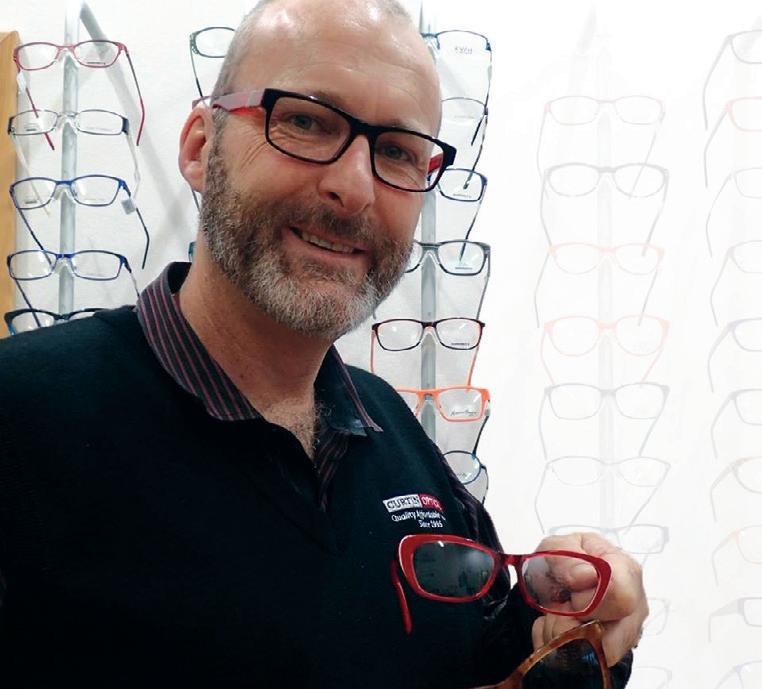
most likely to meet the housing needs of many households currently seeking a detached dwelling and those with low-to-moderate incomes.
However, the design of most apartments has to improve. Too many are poorly sound-proofed, have inadequate storage, inflexible layouts and too few bedrooms.
A guide highlighting quality design, supported by faster approval of consistent developments and demonstration projects would assist the development of appropriate dwellings and a reduction in costs.
Requiring redevelopments to have a minimum block size, along the lines of the 0.4 hectares required in the Kingston/Griffith redevelopment area in the 1970s, would facilitate more flexible designs that minimise the loss of vegetation, achieve better privacy, solar access and parking outcomes.
Better built, higher-quality units would increase the attractiveness of higher-density dwellings to more households and assist community acceptability.
Analysis is needed to determine whether such requirements will result in the construction of sufficient, well-designed, family friendly


and affordable dwellings.
The construction of far more social housing is needed to address the extreme level of unmet housing need in Canberra. The construction of such housing, incorporating improved designs, could be facilitated by the diversion of labour and funds from the far-from-urgent light rail extension.
For the environmental impacts of Canberra’s development to be minimised, higher-density dwellings need to be more attractive, appropriate and affordable to a wider range of households.
Until this is achieved there will be an ongoing demand for new detached dwellings.
Analysis is needed to identify the costs and benefits of potential greenfields areas and of housing preferences. Will the ACT government have an epiphany and make decisions based on evidence?
Mike Quirk is a former NCDC and ACT government planner.





Citizens in a democracy are entitled to hold views on anything.
They also have the important freedom to argue for their beliefs, no matter how absurd. They can argue that the world is flat to people who fly around it.
Successive ACT governments have won popular mandates for a light rail network. The ACT was in fact designed by Walter Burley Griffin with satellite town centres connected by trams.
With a Labor government re-elected, I hope that the new Liberal leadership will finally listen to voters and support this important job-creation project in these difficult economic times.
The Liberals misread the determined opposition from a small group of climate science deniers as widespread community opposition to light rail.
There was no “business plan” for a tram. It needed to be evaluated against other carbon-reduction measures. The tram was low-hanging fruit compared with carbon capture and storage from coal and gas-fired plants or feeding seaweed to livestock.
It was for this reason that taxpayers from outside the ACT were picking up half the cost of our carbon-neutral transport plan.
The Liberals seem determined to learn from their rejection by voters.
this important project survives a Dutton government.
Noel
Baxendell, Holt
If the Australian government is serious about removing charges on cards, debit or credit, it could begin with the Australian Tax Office. Paying my tax this morning and using a debit card (=cash) I was charged for the transaction. On what basis can the Australian Tax Office, an arm of government, charge me for paying my bill?
It’s time to remove these charges Mr Chalmers. I don’t pay them when using my card in the UK or European countries, why here in Australia?
Gerdina Bryant, Watson
Paul Dorin’s cartoon in Robert Macklin’s column “Trump might be a plus for the good guys” (CN, November 14) features a young boy asking his father: “Do you think he (Donald Trump) can make Australia great again?”. An honest answer to that question could be: “Probably not: he might make Australia poorer and hotter”.
caught in the crossfire of a trade war with China as Trump imposes punitive tariffs of up to 60 per cent on imported Chinese goods. This would inevitably cost Australia dearly. Perhaps most important is Trump’s view of climate change as “a hoax”, or “a scam”, depending on which way the dice fell, his oft-repeated motto “drill, baby, drill” for more fossil fuels, his vow to withdraw (again) from the Paris Agreement; and his clear intention to do away with all environmental protection and regulation. Trump is promising a hotter world, and Australia will probably suffer the heat more than will the US.
Donald (“dictator for a day”) Trump is not just a danger to US democracy, he is a clear and present danger to Australia and the world.
Dr Douglas Mackenzie, Deakin
Robert Macklin’s column (CN November 13) on the outcome of the US presidential election, is certainly food for thought. I have American relatives, and I know how concerned they are about the next four years.
In the months leading up to the election, I opined that, whatever the outcome, the result would be a lose/lose.
party by comparison, and now he has won, the implementation of Project 2025 has the potential to not only have a deleterious effect on the US, but also the rest of the world.
Regrettably, many of those who supported Trump as they felt disenfranchised, will be the ones to suffer the greatest from the introduction of tariffs and the subsequent inevitable increase in the price of goods, whether they be imported or locally manufactured, followed by the inevitable rise in inflation.
If we thought Trump’s first term was a wild ride, then strap yourself in for this one.
With Musk and Vance among those having Trump’s ear, anything is possible.
Ian De Landelles, Murrays Beach, NSW
There’s a simple solution to Susan Cruttenden’s concern about wildlife killed by traffic (“Dead wildlife would have concerned the King”, CN letters November 13).
Fit an electronic Shu-Roo to your vehicle if you frequently drive at dawn or dusk when wild animals come to the road verges for the green-pick.
Don’t bother with the cheap “whistle” variety, as they only work at speed. They don’t project deterrent, high-frequency,
prevent vehicle damage. I can vouch that they are a worthwhile investment.
Anthony Horden, Jamison
We have rejected the natural law
Jon Stanhope (“We need a hard look and ask, is this who we are?” CN November 7) cites two examples in which our elected governments are responsible or complicit in human tragedies.
He sees David McBride in the same vein as a martyr and believes we are convicting our criminals to rot in jail.
When Jon Stanhope quotes Alexander Maconochie that “you cannot recover a man except by doing justice to the manly qualities he may have” he is acknowledging a humanity that we all share and that runs to the core of our being.
There is a story told about the late Kerry Packer who earlier was revived from a near death experience and said: “There’s nothing on the other side. No one’s waiting to judge us. So you can do whatever you f..king well like.”
This is pretty much where we are at. We have rejected the natural law, the bedrock of Western civilisation. Our socially conditioned intuitions arise from each person acting on his or her core feelings. Ethics is about giving

When things go wrong, seeking help may seem scary. But Canberra has a wide selection of industry professionals who have years of experience to provide the best legal advice and aid to anyone in crisis.
In this feature, CityNews showcases the skills of some of Canberra’s leading experts.
Specialising in medical negligence, historical sexual abuse claims, public liability claims and workplace injuries and harassment claims, director of Commins Hendriks Solicitors Alison McNamara says good law must be rooted in traditional values.
“We aren’t interested in flashy titles or docu ments, we offer old-fashioned values,” she says.
“Service to our clients is always our top priority.
“We take a caring approach to everything we do.”
Operating in law for more than 20 years, Alison says she’s still living her dream by being able to help people.
“I’ve never wanted to be anything else,” she says.
“I do it to get results for our clients.
Ken Hubert, of Capon and Hubert, began his career as an articled clerk with Romano and Verducci, and spent some time as an associate assisting Justice Kelly, says finance director Rhonda Hubert.
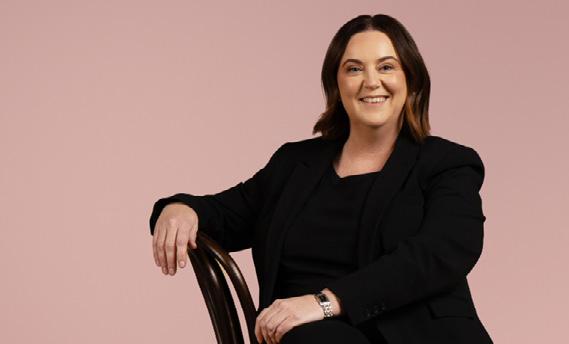
“When something catastrophic happens, I want to be there to hold their hand through the entire process, ensuring they feel supported, valued and cared for.
“We’re more than just lawyers, we care about your rights and we’ll fight passionately for them”.
Commins Hendreks Solicitors have been operating for more than 100 years and is one of the oldest law firms in Canberra with a total of seven offices serving the region.
“We know what we’re doing,” says Alison.
“We know what works and have experience in what we do.
“We’re lawyers for life. We are there to help our clients, they mean the most to us.
“It’s all about putting them first.”
Commins Hendricks Solicitors, AMP building, Suite 4, Level 4/1 Hobart Place, Canberra. Call 6191 7000 or visit comminshendriks.com.au
“He has spent his working life in legal practices in Canberra,” she says.
“He then worked with William G Pierce, eventually buying out the practice, which then merged with that of Geoff Capon, and became what is now known as Capon and Hubert.”
Ken and Geoff made a deliberate decision to keep their practice in the suburbs, firstly at Mawson and then in Phillip, says Rhonda, because Ken and Geoff always wanted to work with people handling the ordinary matters of life, and assist them with issues they face.

He also assists those who are faced with the completion and tidying up of estates in Probate work.
Rhonda says Ken’s legal career spans over 40 years, and that he has spent many years involved in family law work, and also conducts mediations to assist clients to resolve differences without needing to go to court.
Ken is now very involved in wills and estates work, she says, assisting clients to have wills created which reflect their wishes.
Daryn Griffiths joined Capon and Hubert more than six years ago, says Rhonda, and his area of expertise is with property law, handling residential and commercial work. She says he also reviews retirement village agreements, which vary from village to village.
Capon and Hubert Lawyers and Mediators, first floor, 32-38 Townshend Street, Phillip. Call 6152 9203 or visit chsol.com.au


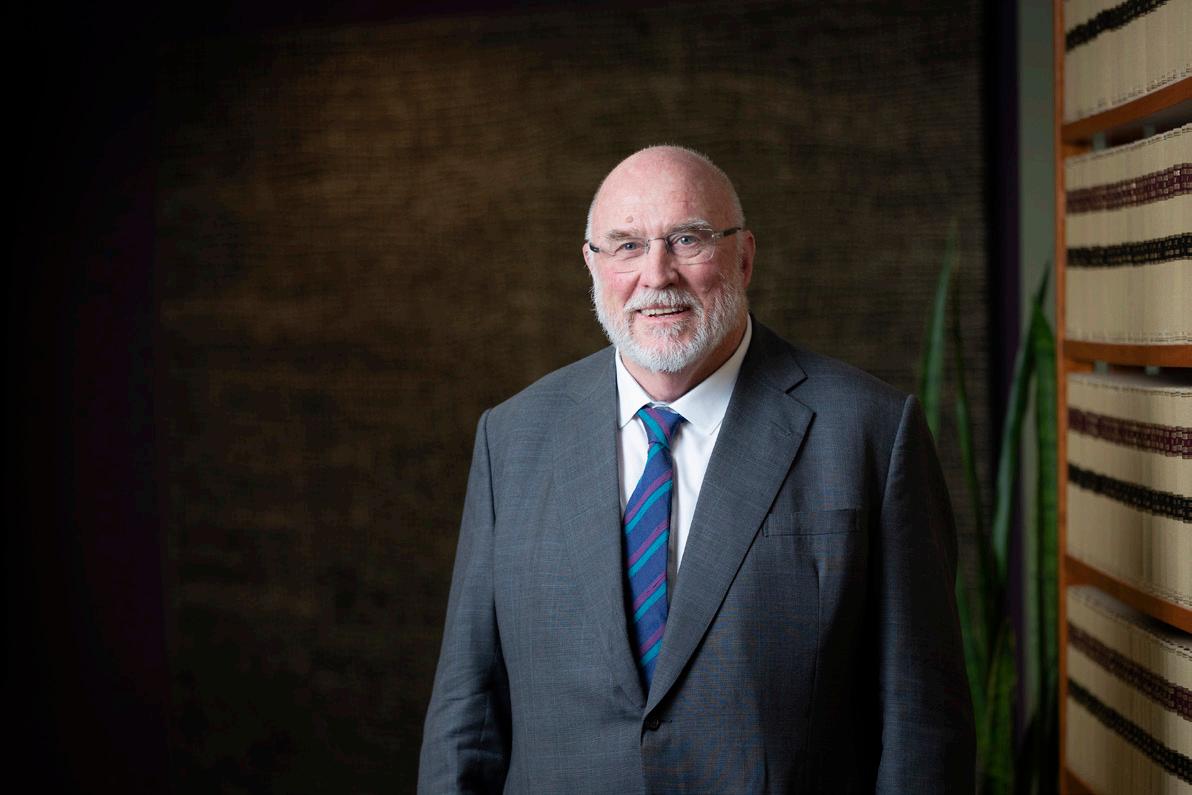
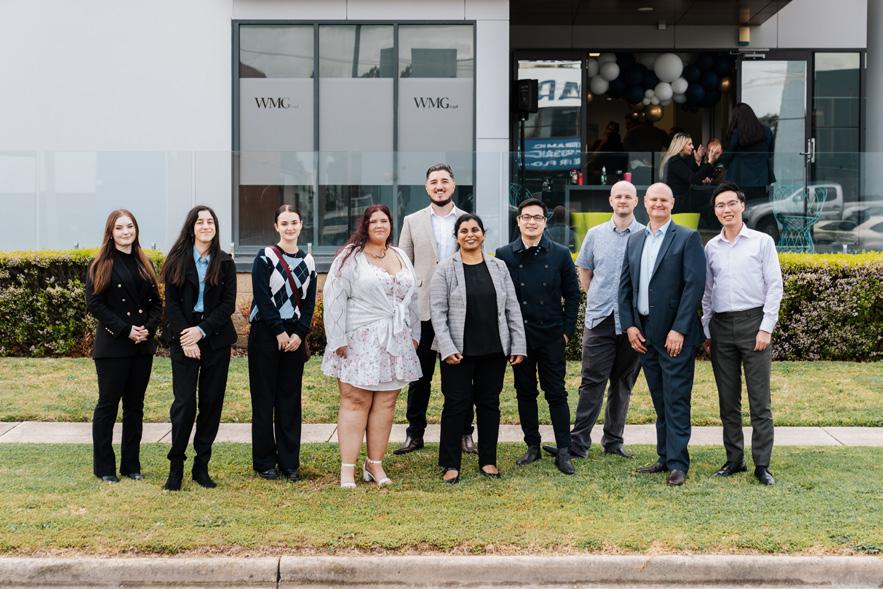
to Mitchell, principal solicitor at WMG Legal, Chris Malfone says they are now better equipped to continue expanding their organisation and are “better equipped to help more people”.
“We see clients all over Canberra and Australia,”
“We are even beginning to see clients all over the world due to cutting-edge technology.
“We are streamlining our services to make them more accessible and efficient for our clients.”
Working under solicitor Wayne Warton, Chris was the first solicitor to join Wayne after he opened his
The company has rapidly expanded with a diverse team of 12 professionals catering to a broad
From
•
Now located in Mitchell, Wayne says their location change has helped them continue to broaden their reach.
“This new location is a win-win for us. Centrally located and just four kilometres from our previous office, it opens up an incredible opportunity for us to grow,” says Wayne.
“We’re committed to being efficient and offering value for money for our clients,” says Chris.
“We’re now able to work over video conferences worldwide.
“It’s all part of our commitment to continue growing our abilities to help our community.”
“Wayne is incredibly generous with people,” says Chris. do is; he has great experience and can always offer great insight to me.”
WMG Legal, 4/6 Pelle Street, Mitchell. Call 6253 9766 or visit wmglegal.com.au
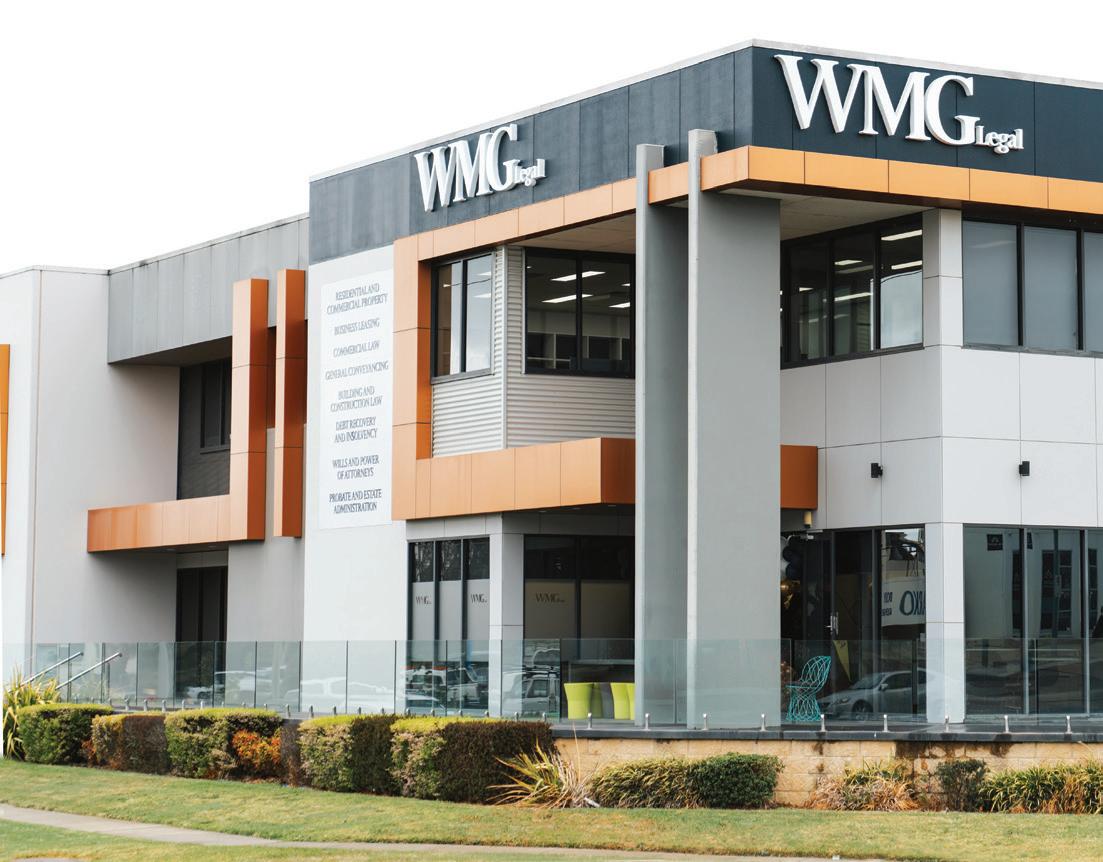

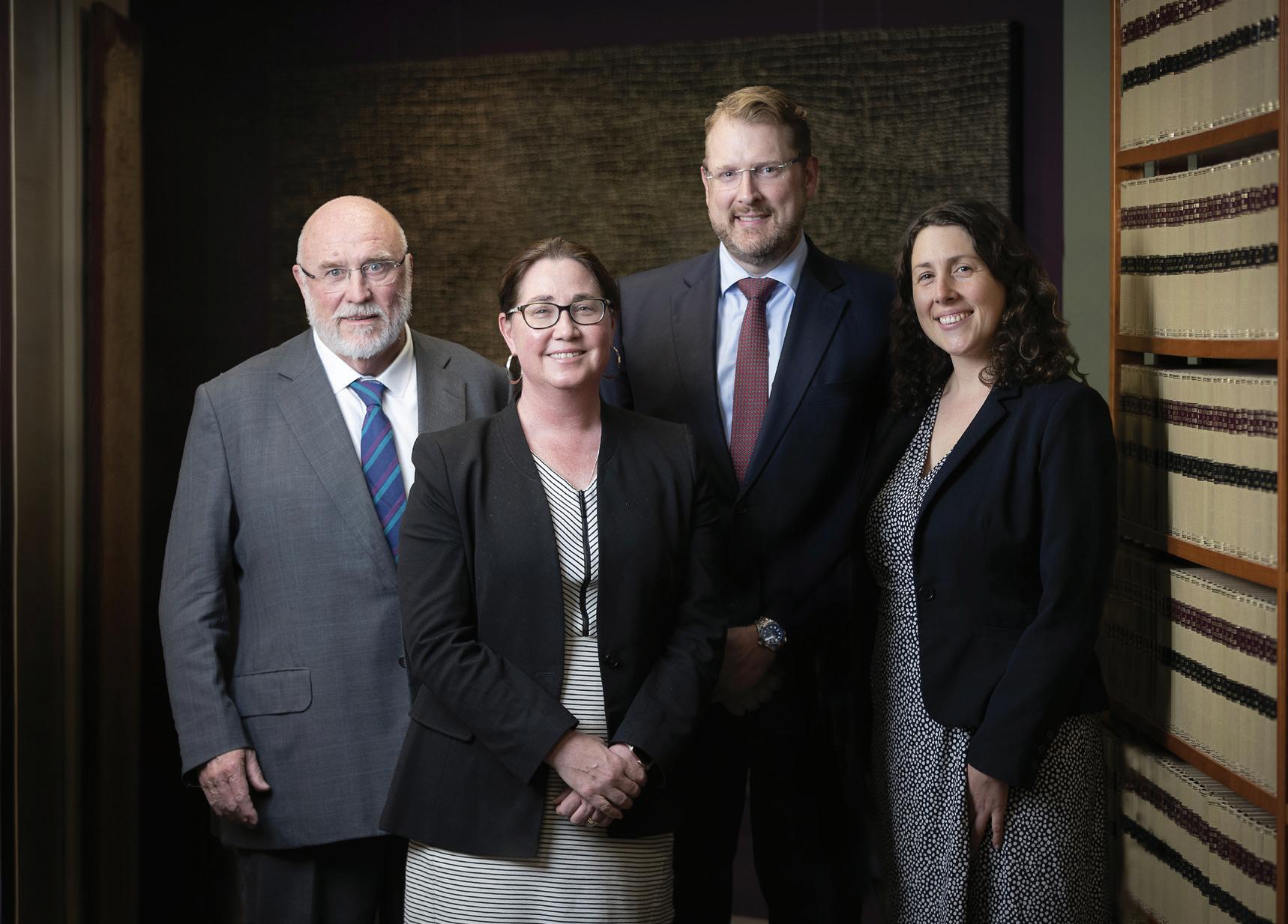
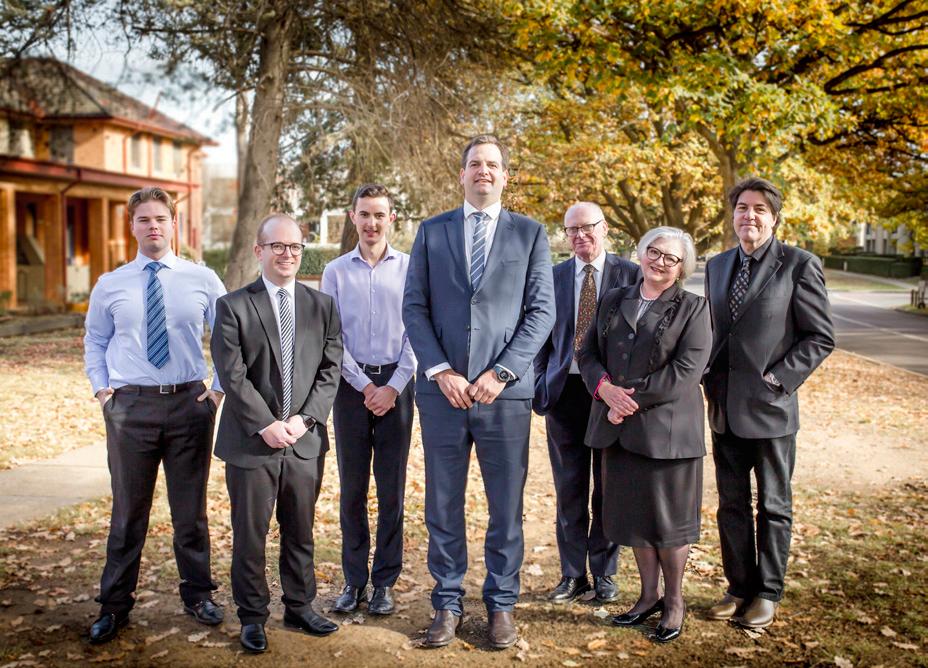
“Compensation specialists can help you get what you’re entitled to,” he says.
“However, it’s not always easy to get what you deserve.”
RMB Gil-Jones Barker Lawyers has a team of 10 lawyers that specialise in compensation.
“The legal system can be scary and confusing when it comes to compensation claims,” says Chris.
“The RMB Gil-Jones Barker Lawyers team has accredited specialist compensation lawyers who can make sure you receive the compensation you’re eligible for.”
According to Chris, compensation claims cover weekly
whether or not a specific type of treatment is ‘reasonably necessary’,” he says.
“That’s why we are here to ensure you’re not left in the lurch after an injury.
“If you have a problem with a workers’ compensation claim or would like advice on your rights, I urge you to contact RMB Gil-Jones Barker Lawyers in Canberra for a free consultation.”
RMB Gil-Jones Barker Lawyers, Unit 6, Level 2/97 Northborne Avenue, Turner. Call 6180 5111 or visit rmblawyers.com.au
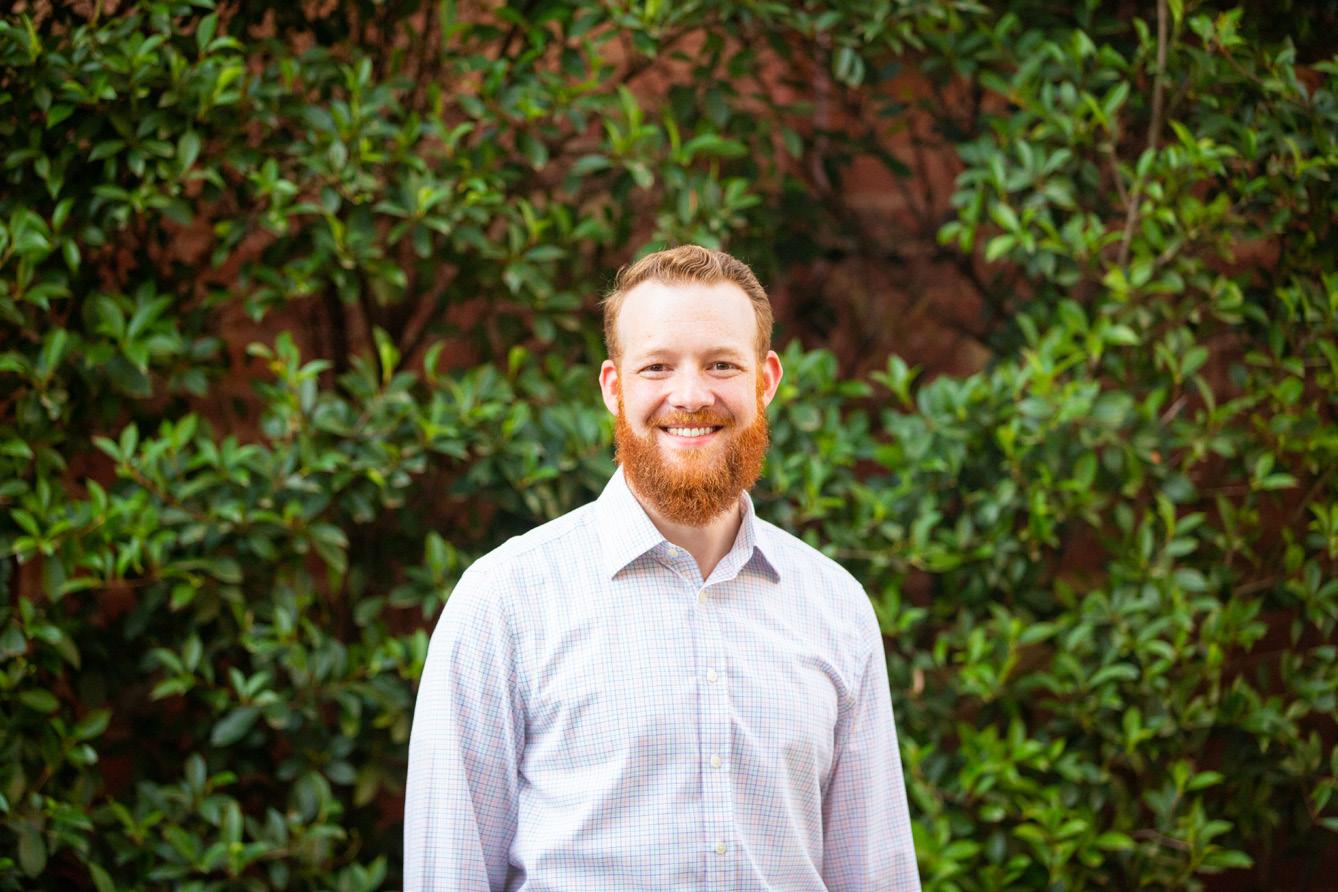
48 Corinna Street, Phillip. Call 5133 5664 or visit signus.legal
Your legal issues are dynamic and ever-changing, our goal is to deliver exceptional legal services in an efficient and flexible way.

We provide comprehensive solutions tailored to your specific circumstances. We take the time to understand your needs to ensure your estate plan aligns with your exact intentions.

Looking to make your property dreams a reality? Whether you’re buying or selling residential or commercial property, we’re here to guide you every step of the way.


We work collaboratively with trusted advisors including accountants, financial planners, and insurance brokers to ensure your interests are safeguarded throughout the legal process.

We offer efficient and expert assistance for all your notarising and witnessing needs. Our appointed Notary Public, Brendan Goodger, holds internationallyrecognised authority to witness signatures and notarise documents for overseas use.



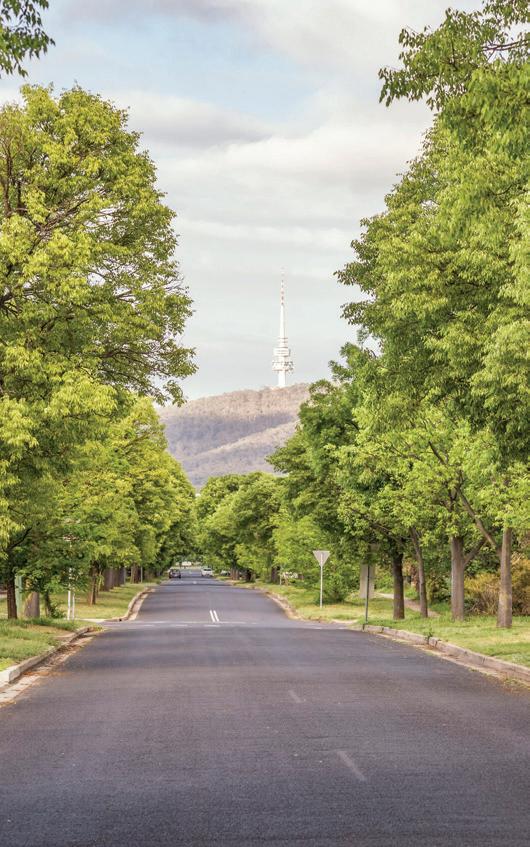

Been charged? One of the most important things to do is to seek legal advice to find out your rights, says partner at CODA Criminal Law, Peter Woodhouse.
“When in doubt, get the advice to allow you to make informed decisions,” he says.
“We’re experienced across all areas of criminal law and will match you with the lawyer that best suits your needs.
“Our team will ease your stress and tackle your case without judgement, which is what you need during one of the toughest, most uncertain periods of your life.”
With decades of experience amongst CODA’s four lawyers and two paralegals, Peter says each member has worked exclusively in criminal law.
“Choosing a specialist in criminal law means they have a network of contacts they can utilise to argue your case and build a strong defence strategy,” he says.
“We are one of Canberra’s newest law firms, and have committed ourselves to providing accessible and easily understandable help.
“We provide services that are easy for our clients to understand the process from start to finish.”
According to Peter, there’s no such thing as a case too big or small for the CODA team to handle.
“We treat all cases seriously,” he says.
CODA’s office number has an after-hours function that allows clients to contact a lawyer at any time.
CODA Criminal Law, Level 7/1 Hobart Place, Canberra. Call 6279 4288, or visit codalaw.com.au
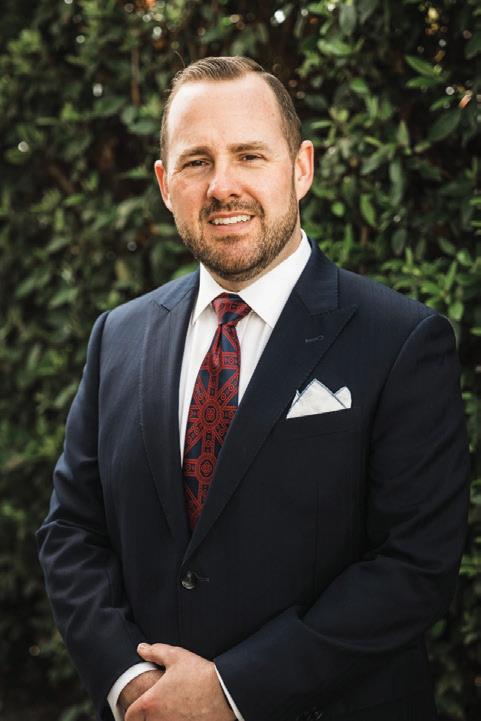

After bonding over a shared love of law and noting a like-minded approach to work and high standards of morals and ethics, lawyers Lucy Stramandinoli and Anna Neilan became co-directors of Neilan Stramandinoli Family Law.
“We’ve had the privilege of meeting some incredible people throughout our careers, both clients and professionals,” says Lucy.
“We take the trust that our clients place on us very seriously and we strive for the best outcomes for our clients.”
Operating since 2017, Anna and Lucy bring with them a wealth of knowledge acquired from working in Canberra firms.
“We specialise in family law, which covers complex parenting matters, domestic violence matters, property cases, documenting agreements, asset protection and much much more,” says Lucy.
Initially intending to work as an accountant, Lucy fell in love with practising law after graduating from
At Neilan Stramandinoli Family Law, we pride ourselves in our proven track record, our commitment to excellence, and expert knowledge of family law. We understand how difficult and emotional family law matters can be, we are compassionate and empathetic, guiding you towards the best possible solution for you.
For separating couples:
• Parenting arrangements
• Dividing property and superannuation
• Family violence matters
New or existing relationships:
• Best arrangements for your children
• Protecting assets and yourself
• Preserving entitlements
year 12.
“I was in awe with the lawyers who were working so hard to help their clients, many of whom were disadvantaged economically but were at an advantage because of the legal representation they were receiving,” she says.
Now working at her own firm, Lucy says she still loves working in law.
“As Anna and I have been working in the local legal community for so long, we’ve established relationships with other experts in many different fields,” she says.
“We love to problem solve, which sometimes means we don’t switch off during our personal time as we’re always thinking about how we can resolve issues or what the next move will be in our cases.”
Neilan Stramandinoli Family Law, Suite 1, Ground Floor/5 Farrell Place, Canberra. Call 6152 0493 or visit nsfamilylaw.com.au

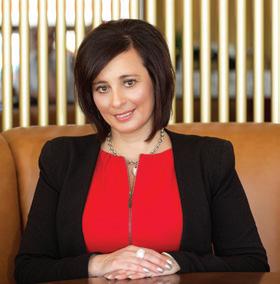

Guiding you through the legal process with clarity, compassion & commitment.
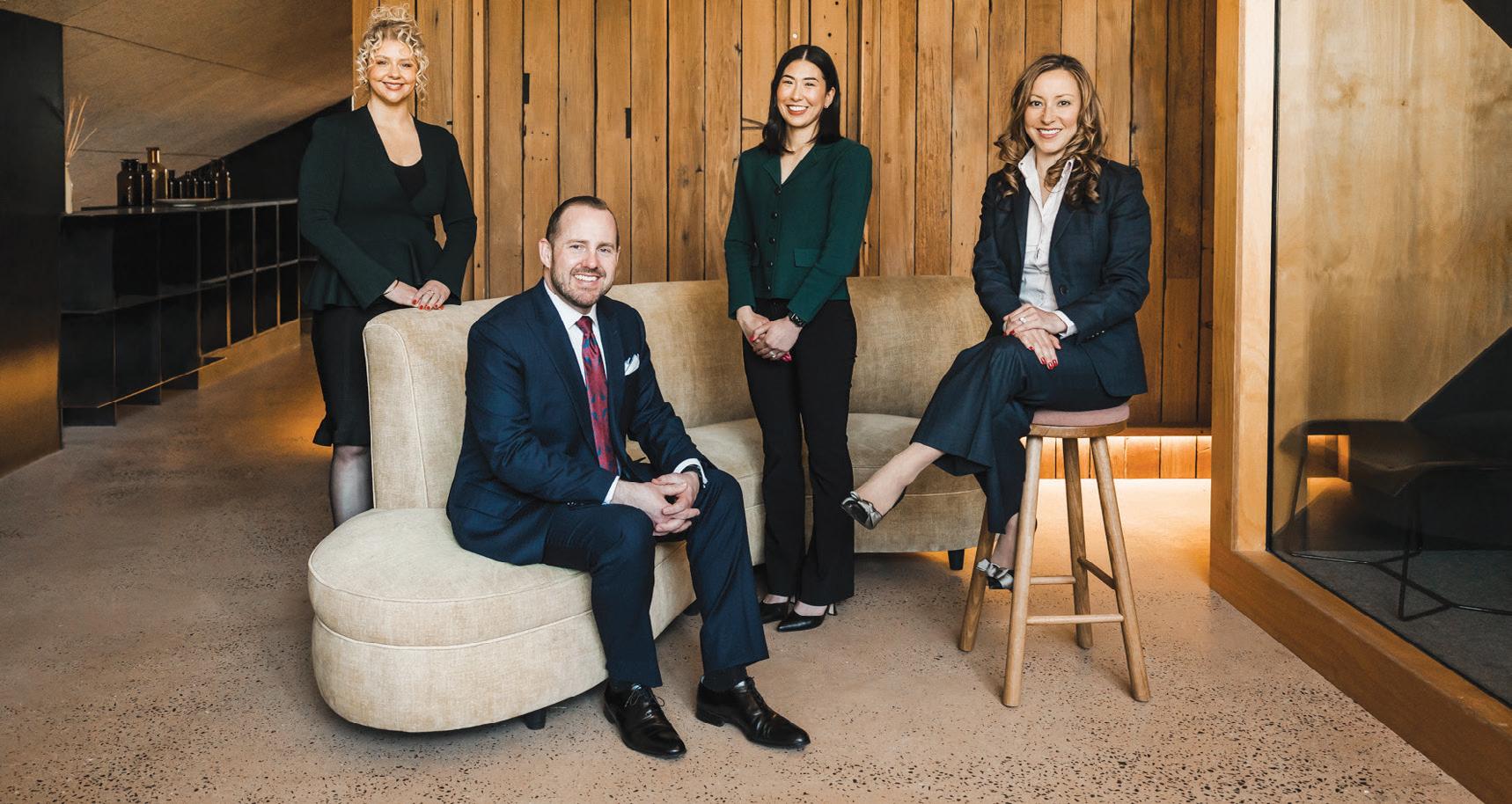
At CODA, we put clarity, compassion and commitment at the centre of what we do.
We will clarify the legal process, treat you with compassion, and demonstrate our unwavering commitment every step of the way.
We prioritise quality over quantity, which means you are always provided with tailored legal advice, and we are there for you when you need us.
When facing criminal charges, contacting CODA should be your first and final step.
When courtroom dramas look complex, CityNews readers turn to former barrister HUGH SELBY for clear explanation, perspective and (occasionally) a little levity.
Exclusively the CityNews legal columnist, his sharp opinions and wry observations are read all around Canberra and all around Australia.
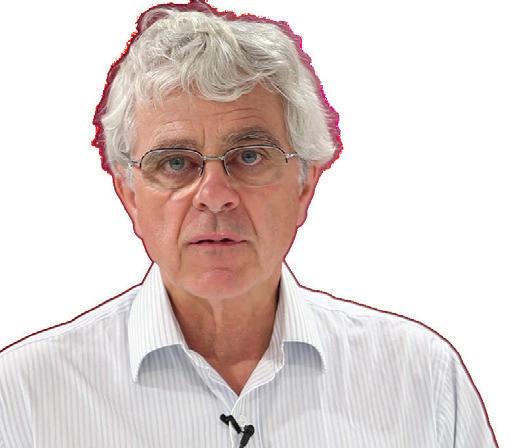
Stay up with Selby in CityNews and on citynews.com.au

Operating since September 2023, Anna Wynne and Associates provides family law legal services and family law mediation services.
“We focus on helping families work through a difficult time or relationship breakdown with dignity and respect,” says owner Anna Wynne.
“Our focus is on helping families work through difficult times – such as relationship breakdowns – with dignity.
“We encourage our clients to focus on the future and what is the best outcome for children and families involved.”
Specialising in family law and family media tion services, Anna says she chose to study law as she’s always been passionate about helping people who may be going through a difficult time.
“Our organisation is focused on helping families move forward in their lives by keeping legal fees low,” she says.
“Our primary focus is ensuring our services are accessible and affordable to the community to ensure our clients get the best outcomes possible.
“It’s all about the best interests of any children involved.”
Anna says it’s a privilege to be trusted by people to support them when they’re trying to work through what is a huge crisis and tipping point in their life.
“I love working with my clients to help and sup port them by figuring out the best way forward for themselves and their children,” she says.
Anna Wynne and Associates, 7 Neptune Street, Phillip. Call 6190 6159, or visit awynnelegal.com.au
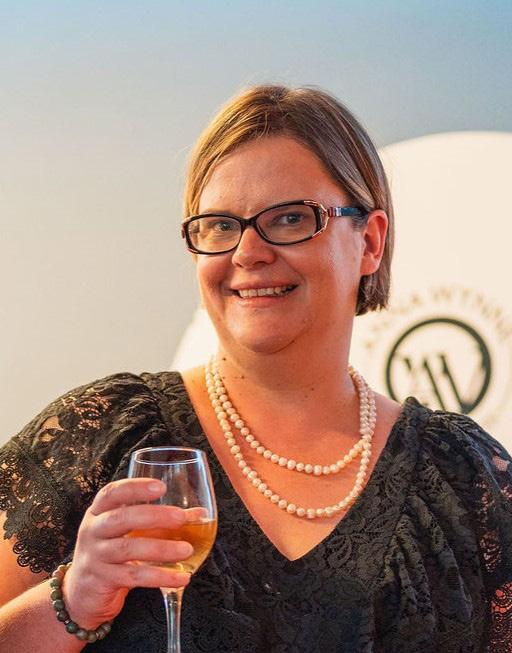
Retirement village contracts are often difficult to navigate. Jo Twible will simplify the process, explaining the details of your contract, to help you with a smooth transition.
Jo Twible’s services include:
• Retirement village entry & exit
• Aged care entry
• Residential & Commercial Conveyancing
• Commercial Leasing

• Sale and purchase of businesses Jo Twible Principal
For successful results in a cost effective manner call 6281 0999 or email kjblaw@kjblaw.com.au
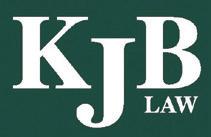
Ground Floor, 10 Corinna Street, Woden

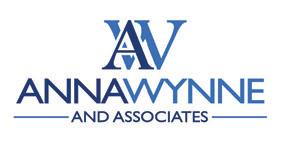
BALANCE Family Law was established in 2019 with a focus on non-adversarial family law, to keep families out of court, says director Perpetua Kish.
“I have previously seen the harm courts can do to families and children, so I work peacefully with clients to resolve matters outside the court system.
“We lead the Kind Lawyers move ment, which is all about changing the conversation in law from one of combat to kindness.”
In 2020 the firm expanded to include wills and estate planning, led by Balance’s co-founder Johnathon Naef.
“Jono was named a finalist as a New Lawyer of the Year 2023 in his fifth year of practice,” says Perpetua.
“And, the New Year is the perfect opportunity to update and refresh your will.
“We have grown from a team of two right up to a team of eight now, with diverse backgrounds and languages spoken amongst us.
“We are passionate about helping couples and families separate the smart way, with kindness, with respect, without court.”
Balance Family Law. Call 6189 1748, or visit balancefamilylaw.com.au




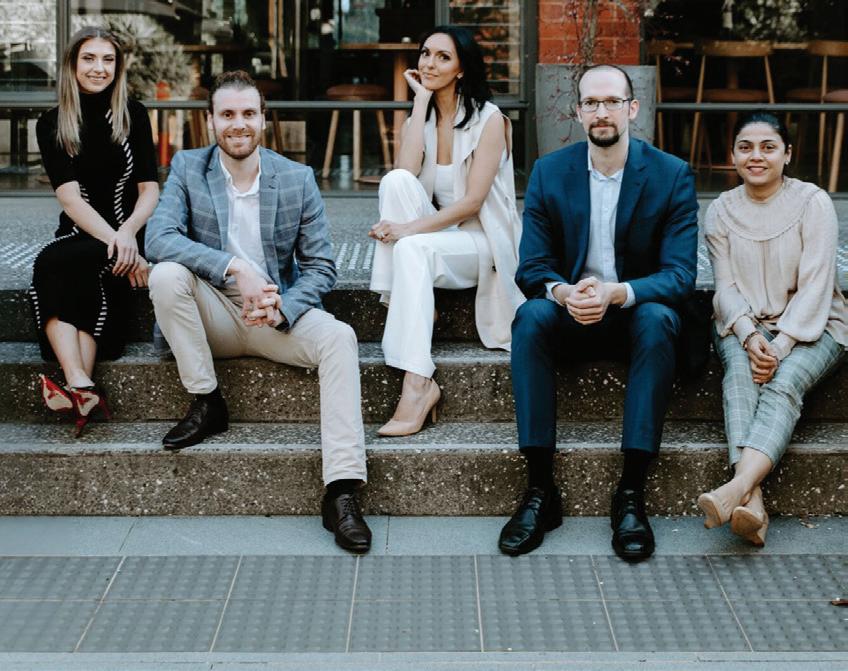







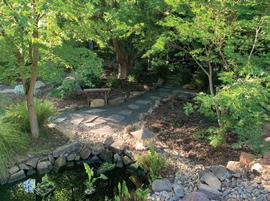
23-24 November: Macedon Cr, Palmerston & Boyce Place, Chifley
Entry is $10 for visitors 18 years and over. Join Open Gardens Canberra for only $30 and all gardens are free for the membership year (end June 2025). See website for more information and membership opengardenscanberra.org.au

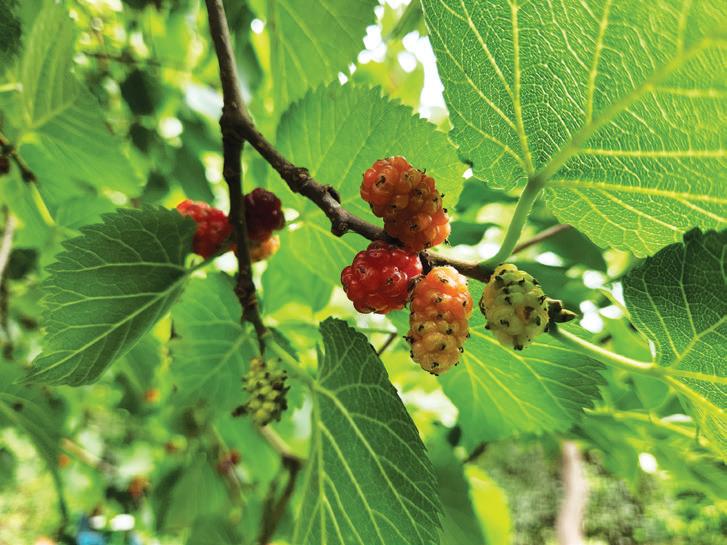

By Jackie WARBURTON

It’s the beginning of the summer fruiting trees, such as the stone fruits, nuts and mulberries.
Saturday 23 November, 8am-1pm
Sunday 24 November, 8am-1pm
Vegetables, Herbs and Flowers available.
Proceeds to Canberra Refugee Support.

Opposite Telopea Park, adjacent to the Canberra Baptist Church, Currie Crescent


The mulberry is a fast-growing tree that fruits within its first few years and grows well in our climate. Mulberries are deciduous and have buttery yellow leaves in autumn. It can be used as a feature tree in a weeping form or as a quick-growing shade tree.
It fruits on new growth, so pruning to keep it in shape needs to be done after harvesting and when the weather is still warm. This will maximise fruiting capacity the following year.
Sprinkle citrus food occasion -
ally in autumn to get it growing strongly.
There are white, red and black varieties to choose from. The white mulberry (Morus alba) is the sweetest and the healthiest to eat from the garden. As a tree that grows to about eight metres tall and wide, it can be used for shade.
The red mulberry (Morus rubra) is bigger again, but unsuitable for suburbia.
That leaves the best choice, the black mulberry (Morus nigra) It comes in a dwarf form that grows to three metres and will fit comfortably in an orchard or as an ornamental tree in the garden.
Pick the fruit when it changes colour and is beginning to soften. The fruit won’t ripen after being picked from the tree. The first sign of the fruit being ripe is when the birds spot it!
Mulberries should be stored

in the refrigerator in a shallow container. But wash them only before eating.
They can be frozen, used for cooking cakes, making jams, pies and muffins.
Ensure the fruit of black mulberries doesn’t fall on to paving or hard surfaces as it will leave dark purple stains that are hard to remove.
If space is tight, mulberry trees are also a terrific choice for an espalier tree along a wall.
IT’S time to clean out any water dishes for wildlife that’s in the garden, such as shallow dishes for bees, deeper dishes for birds to drink and other dishes for birds to bathe in.
Refresh water at least once a week and the wildlife will come.
Ponds also attract wildlife such as frogs and lizards. Planting around the edge of ponds and bog areas is vital for wildlife, too.
A tropical-looking plant to try is the giant Brazilian rhubarb (Gunnera manicata) tree. Only the shape of its leaves resemble the rhubarb family.
It is a beautiful plant that clump forms over time. The size of its leaves are more than a metre tall and look spectacular in a large setting.
I have tried several of these and found them tricky to keep alive outdoors in winter. I have one left, and it will be a potted glasshouse plant to survive the winter.
NOW the irises have finished flowering, they can be dug up and divided and replanted if their flowering in spring was sporadic. They can be divided with a sharp spade or, if loose enough, pulled apart by hand.
Remove spent flowering rhizomes, trim leaves 10-15 centimetres above the rhizome on an angle to prevent water getting into its centre. Replant lightly, covering with soil.
jackwar@home.netspeed.com.au
• Deadhead lilacs after flowering.
• Plant autumn bulbs such as nerines, crocus and Sternbergias
• Blast aphids off trees with water from the hose.
• Continue to sow vegetable seeds for autumn cropping.

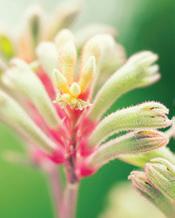
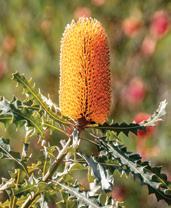

By Helen Musa
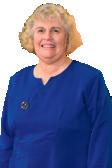
You can fairly bet that when Queanbeyan Palerang Regional Council embarked on building its new headquarters in Crawford Street, it wasn’t expecting to have Shakespeare on site, but director of The Q Jordan Best is taking care of that oversight with her coming production of A Midsummer Night’s Dream.
In what will also serve as the effective unveiling of the newly-landscaped Aunty Louise Brown Park directly outside The Q, she will stage a play beloved of even the most ardent Shakespeare-haters.
There is already a theatrical aspect to the park, with a slightly raised auditorium. But there’ll only be one set piece, a hammock and the actors will enter from all over the place. There will be no lights, the show will finish just as it’s getting dark.
It’s not the first time Best’s directed The Dream; she staged an indoor production at The Q in 2013 featuring a lavish woodland set by Wayne Shepherd. Over the years, she’s also played Bottom, Hermia, Helena, and

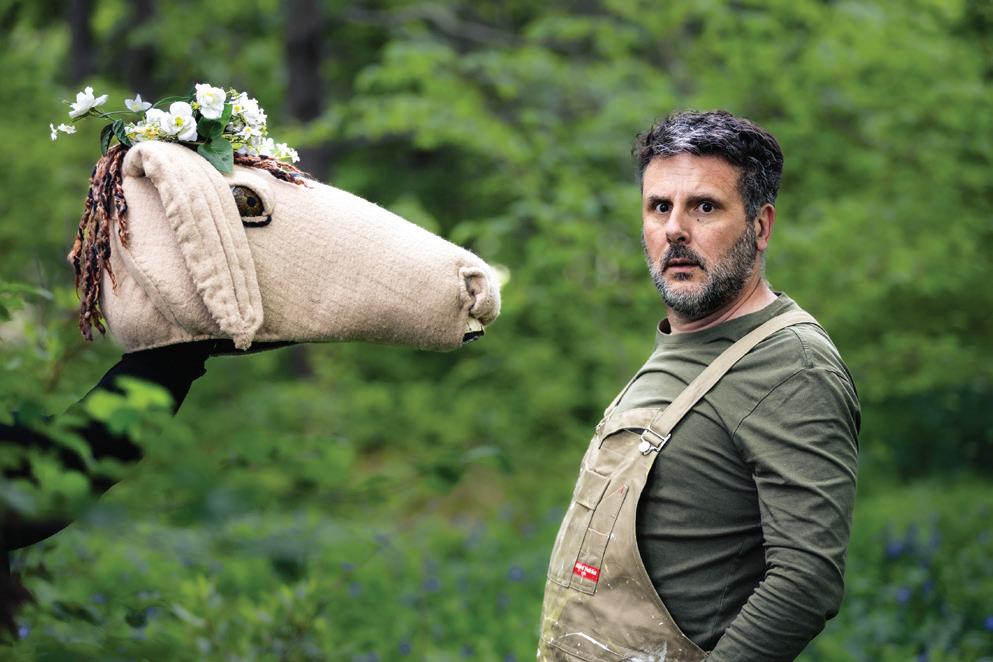
comedy,” she says, “and we are discovering the playfulness of Titania and Oberon.”
And they aren’t mortals, she says, even though in this and most productions they are played by the same actors who perform
The trio of top fairies will be completed by Rachel Robertson as Puck, who is responsible for putting an ass’s head on Jim Adamik playing Bottom the Weaver.
“Don’t forget that they are immortals and


Even the lovelorn Helena, played by Caitlin Baker, gets her man Demetrius and don’t forget, Best says, that Demetrius was originally in love with Helena, so everything has turned out just as it should.
There are no doubt deeper insinuations in the play, which is essentially about perception, so when the lovers wake up the next morning Hermia says: “Methinks I see these things with parted eye, When everything seems double” and Helena responds: “And I have found Demetrius like a jewel, Mine own and not mine own,” but such reflections never hold up the action.
Best has assembled a substantial cast of 21, which allows her to explore the different levels – the fairy world, the Athenian nobles and the Athenian mechanicals, with all their distinctions.
But there’ll be some surprises. Jack Shanahan, who played Mozart last year at Canberra Rep in Amadeus, plays Demetrius as a kind of coke-sniffing yachty, while Liv Boddington plays Hermia not in romantic lead-style, but terrifyingly fierce.
The fairies are played by adults. Titania’s four elves will be androgynous and Puck will have the urban eshay look. The costumes will look as if they’ve been foraged from the costume box of an acting troupe, but will serve to indicate which character is which.
“It’s a brilliantly written comedy,” Best says. “It’s accessible, it’s funny, it’s ridiculous.”
A Midsummer Night’s Dream, Aunty Louise Brown Park, The Q, opens November 25, then runs November 29-December 15. Bring a picnic and chairs. Waxing
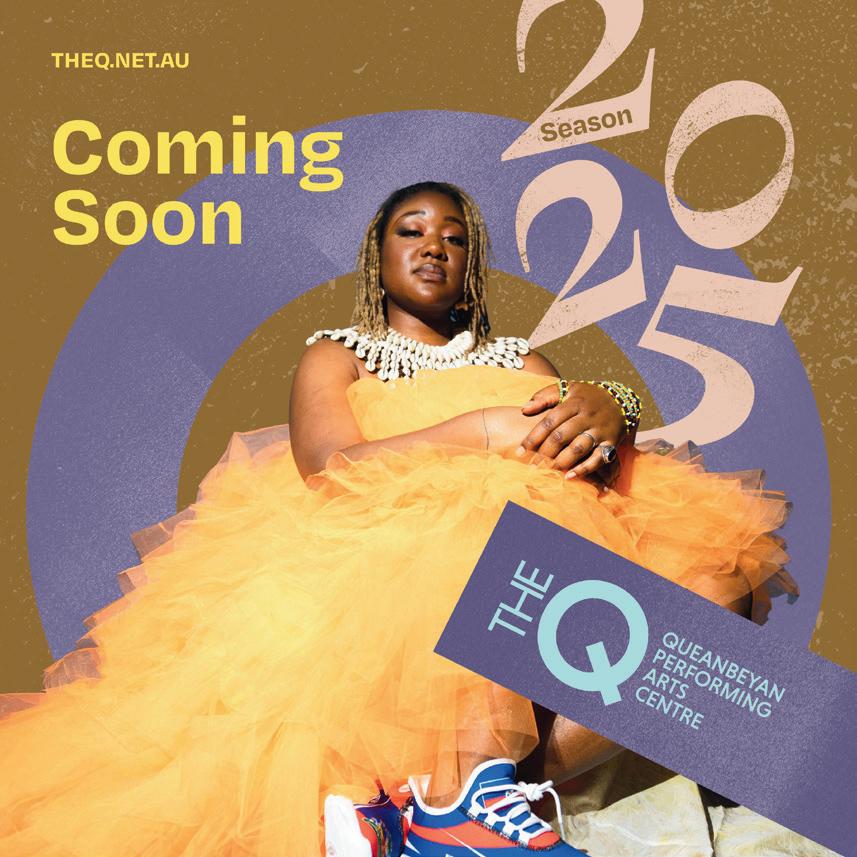

By Helen Musa
When American soprano Rachel Mink steps up with the Ellery String Quartet to perform for Art Song Canberra, the audience will sense quite a different flavour from the usual lieder repertoire.
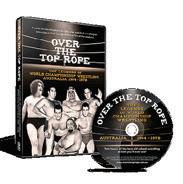
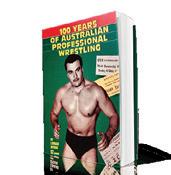


For the concert, Young Voices America, which has been partlyfunded by the famous Peabody Conservatory in Baltimore where Mink studied, will involve some of the most exciting composers working today in the US.
One work is a world premiere, but it’s not all new music as, chosen from Mink’s personal songbook of favourites, there’ll also be numbers by George Gershwin in between works by Pulitzer Prizewinner Caroline Shaw, by Mink’s former classmate at Peabody Aaron Mencher and by violin-playing pop artist, Kishi Bashi.

Mink moved to Canberra during covid for personal reasons and divides her time between here and Sydney, working variously for the education organisation The Song Room in Sydney and as philanthropy manager for Luminescence in Canberra, also producing with Sydney Symphony Orchestra. But when I catch up with her by phone, she’s about to return full-time to the ACT.
According to Roland Peelman, who is now artistic adviser to Art Song and the brains behind this
initiative, Mink is “a fun girl, very talented and smart”.
His role will be to “give it a helping hand” by conducting the world premiere of Mencher’s Atmospheres of the Night.
“It’s quite a complex piece and very virtuosic for the soprano, a tour de force that ranges in tone from the creepy to the radiant… it’s about what we imagine at night, the kind of radiance we imagine, the different perception of what we see… it’s
very extreme, and instrumental, like a soundscape,” Peelman says.
The work was written specifically for Mink, who tells me: “Aaron and I met at Peabody in 2019… and we bonded over an aural skills class. He was a composition student and we decided to work together, but it was difficult to find poetry, so we commissioned it from our poet friend Brandy Hoang Collier.”
She agrees with Peelman about the complexity of Atmospheres of
the Night, saying: “There’s a lot of play with ambience – a lot of metre forced me to use all my skills learnt
She and Peelman both praise the Ellery String Quartet – Brad Tham and Anika Chan on violin, Pippa Newman on viola and Chloe Law cello – who will perform this challenging work, which has been
But there’s a lot more to this concert, and Peelman declares himself proud of how Art Song is now bringing in new work by women, with the Australian premiere of Caroline Shaw’s By and By, based on American folk idiom, written for string quartet but evoking the sounds of instruments such as the ukulele, along with her work, Plan
As a member of the Grammywinning vocal band Roomful of Teeth, who performed at The Street youngest winner of the Pulitzer Prize for Music in 2013 for her Partita for 8 Voices and more recently won the 2022 Grammy Award for Best Contemporary Classical Composition. And you can never accuse Mink or Peelman of being too arty, with the canny inclusion of Bittersweet Genesis For Him And Her and This Must Be the Place (after Talking Heads) by American singersongwriter, multi-instrumentalist and filmmaker, Kishi Bashi. That’s a sure sign that this is art song with a difference.
Young Voices of America, Wesley Music Centre, Forrest, November 24.
By Helen MUSA



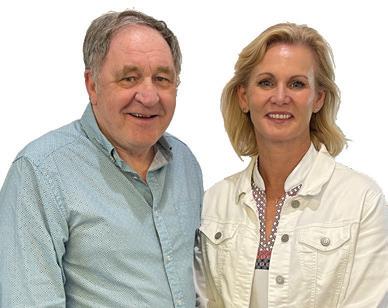
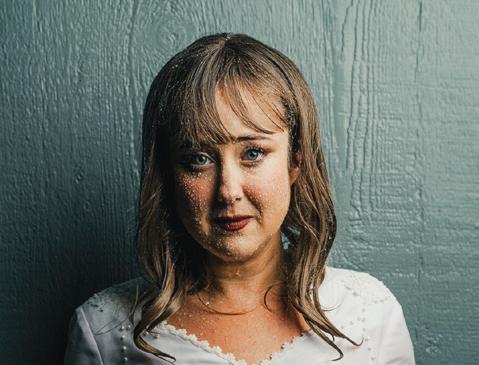
Resourceful Australian writer Isobelle Car mody is raising money for the charity Redkite by using the publicity around the launch of her new book, Comes The Night, being published by Allen And Unwin. Redkite supports cancer patients up to the ages of 18 and their families with financial assistance, emotional and mental health support. Isobelle has made kites and sent them to 30 dif ferent artists and illustrators for them to decorate or paint. Currently being released at hopeflies. isobellecarmody.net.au, from November 27 the kites will be auctioned online, before the book is launched at the National Library on December 5 and in a “literary salon” at Smiths Alternative on December 6.
Canberra Choral Society presents Mendelssohn’s biblical masterpiece Elijah, conducted by Brett Weymark, with operatic bass Teddy Tahu Rhodes in the title role, along with soloists Sonia Anfiloff, Christina Wilson and Damian Arnold, the 70-strong choir, 100 Come and Sing choristers and a 42-piece orchestra. Llewellyn Hall, November 30.
The Australian Rugby Choir’s annual concert, The Spirit of The Earth, will be held at the Hughes
Baptist Church, November 30.
A British murder-mystery with a difference, Ed Sala’s play Bloody Murder, sees the lady of the usual remote manor inciting revolt against the author who writes it. Directed by well-known actor Josh Wiseman, it’s billed as a diabolical comedy. Canberra Rep Theatre, November 21-December 7.
The Italian Tenors, a trio of Luca Sala, Sabino Gaita and Evans Tonon, return to Australia with
arias, Neapolitan classics and popera. The Q Queanbeyan, November 29.
TraXion Big Band and Friends are staging a fun end-of-year celebration featuring two bands, Zackerbilks and the Dylan Slater Collective, as well as a set by the big band. White Eagle Polish Club, Turner, November 24.
Eurydice, by Sarah Ruhl, directed by Amy Kowalczuk, looks at the ancient tale of Orpheus and Eurydice through a feminist lens. The Mill Theatre, Fyshwick, November 27-December 14.
Oriana Chorale presents Rachmaninoff’s Vespers, with guest soloists Andrei Laptev, Andrew Fysh and Maartje Sevenster. Composed only two years before the Russian Revolution, its original melodies blend with Greek and Kiev-style chants. Anzac Memorial Chapel, Duntroon, November 24.
Canberra International Film Festival returns with a screening of The Coolbaroo Club from 1996, restored from the original film negatives, along with another newly restored classic, Warwick Thornton’s Green Bush. National Film and Sound Archive, Arc Cinema, November 30.
Canberra jazz vocal choral group Rhythm Syndicate will perform popular four-part harmony songs together with Christmas tunes. Wesley Music Centre, Forrest, November 27.
Eddie Redmayne isn’t the first actor that comes to mind when one says “deadly assassin”.
The 42-year-old’s resume includes his Oscar-winning performance of genius astrophysicist Stephen Hawking in The Theory of Everything, his popular portrayal of diffident wizard Newt Scamander in the Harry Potter spin-offs and his starring role acclaimed biopic The Danish Girl, where he played one of the first people to ever receive gender reassignment surgery.
But audiences haven’t seen the British actor take on a triple-A action role. That is, until now.
In Binge’s newest thriller series The Day of The Jackal, Redmayne has had a change of pace indeed.
In this 10-episode series he stars as “the jackal”, a ruthless assassin hired to take out high-profile targets around the world.
It’s based on a 1971 novel and 1973 film of the same name, but this new take firmly transports things to the modern day, ensconcing this assassin in an age of high-tech espionage and global political tension.
The jackal is the ultimate killing machine, able to nail a target with a sniper rifle from so far away that even the most elite British intelligence officers doubt it’s possible.
He hides his deadly dealings from his wife and son, but things begin to unravel when another master assassin starts hunting him down, setting the stage for a game of cat and mouse with more than a few funs thrown in.
Eddie Redmayne stars as “the jackal”, a ruthless assassin hired to take out high-profile targets around the world in Binge’s new series The Day of The Jackal.
of The Jackal proves itself a heart-pounding experience with more smarts than your run-of-the-mill thriller. Those who have missed the edge of their seat recently can find it again here.
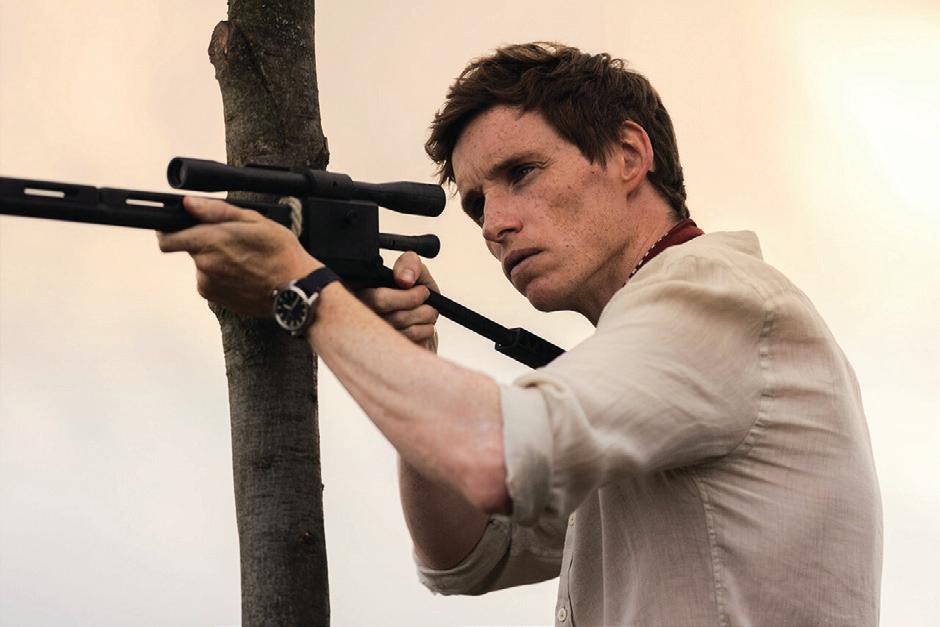
year was one of the best experiences at the movies in years. I don’t know whether my seat or my eardrums were vibrating more.
The gargantuan, sci-fi blockbuster based on Frank Herbert’s classic 1965 novel boasted a cinematic spectacle that rivalled
started streaming on Binge.
It winds back the clock 10,000 years before the events of the Dune films. It follows the machinations of the Bene Gesserit, a secret order of women who seek to discover a powerful messiah prophesied to lead the galaxy into a new era.

It will be interesting to see how things go when scaled down to the small screen.
The story of Dune Prophecy is going to have to be very strong to carry this series through and being set a whopping 10,000 years before the events of the two films, one has to wonder, is that just a little too far back to still generate interest?
Ten thousand years of spin-off content. The executive’s mouths must be watering.
SEASON one of Apple TV Plus’ sci-fi dystopia series Silo proved itself to be one of the most intriguing new shows of last year.
Starring Rebecca Ferguson (who coincidentally also stars in the Dune films) this series tells the tale of an apocalyptic future where humans have had to retreat underground to save themselves from the toxic surface above.
They’ve carved out some kind of existence in a cylindrical society stretching kilometres into the earth.
But what are they really being kept inside for and what’s really out on the surface?
These questions have kept viewers coming back to know more.
With season two Silo has work to do to expand its world building, but it holds promise to cement itself as a real cerebral sci-fi hit for our age if it can pull it off.

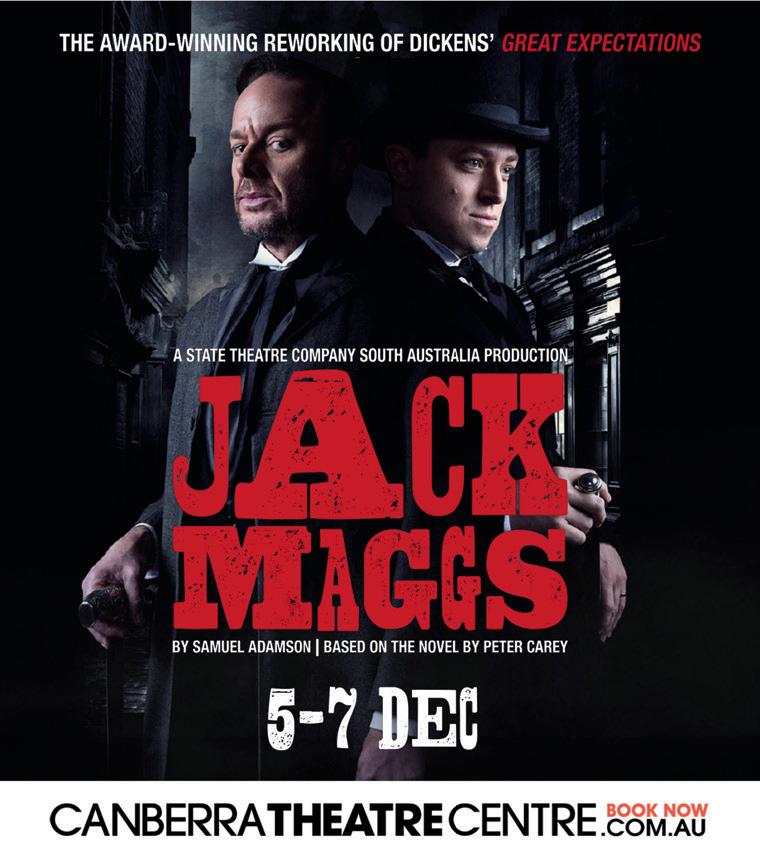

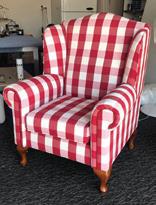

twinstitch.upholstery

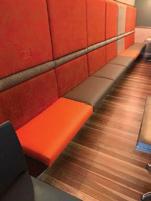
Amara, a newish restaurant in the city, takes a fresh, creative and artisan approach to Indian cuisine.
Its menu features dishes that are both modern and steeped in tradition. The focus is just as much on presentation as it is the secret mixing of hand-ground and carefully sourced spices to create deep and exotic flavours.
A house speciality is the dosai and we ordered ours with a spiced ground lama masala filling (mini size $13 and regular $26). The crepe was slightly crispy and wonderfully thin. It was served hot with two dips, one cooler than the other. We were encouraged to dip our dosai into both before indulging, which we did, appreciating the advice.
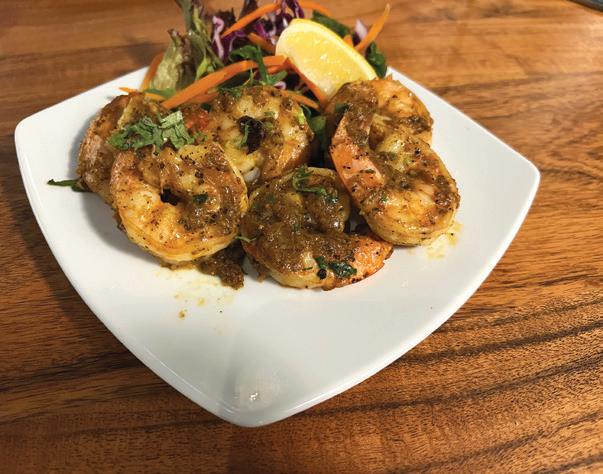

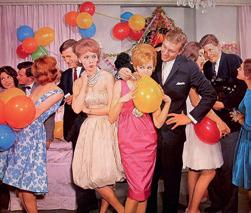
•
•
•



Gorgeous in appearance and sensational on the palette was the spinach chat ($15.90). It was a cold, refreshing and intriguing combination of spinach leaves with potatoes, chickpeas and a creamy sweet and tangy yoghurt sauce.
Prawns were up next (six pieces for $17.90), marinated in an onion and peppercorn blend giving a lovely level of heat. They were plump, grilled to perfection and married well with our Saint Louise De Provence rose ($31 a bottle).
The mixed vegetarian daal was a golden delight in every sense. The lentils were soft, the dish creamy and the classic tomato and garlic sauce thick and indulgent ($18.90).
of spices made by Amara’s talented chefs. Its sauce was tangy and the beef pieces s-o-o-o tender.
Goat on the bone was transformed into an amazing curry (medium heat, $25.90). It was slowcooked in a rich blend of aromatic spices, onions and tomatoes. Most but not all pieces were melt-in-themouth (the odd one would have enjoyed being slow-cooked for a
naan into various sauces, making our tummies very happy indeed.
We applauded Amara for its compact wine list. The prices are super reasonable with some great options. Whites start at $9.50 a glass and red at $8.50 (for a Barossa Valley drop). Bottles are $28 to $38 for red and $33 to $40 for white.
Service was knowledgeable and friendly, with staff eager to please.
refined, although noise was an issue on our visit (partly due to a supplier issue causing a delay with sound proofing and artwork). We were seated near a large table and a second large table arrived during our meal ramping the volume up. While it was rewarding to see Amara drawing the crowds, we eventu ally asked to be reseated.
Neighbours came for drinks and snacks at the end of a sunny Sunday.
The new neighbours hadn’t met the old neighbour, so it was a celebratory introduction because we literally live one on top of the other in a stairwell comprising three units each of three bedrooms. Which reminds me: did you hear about the last remaining unit in our apartment block? It was last but not leased.
Given the celebratory nature of the occasion, I served a Tasmanian sparkling that is, I believe, good value for money at around $35 a bottle, a Pirie non-vintage sparkling.
As I poured this bubbly, I asked if the neigh bours had any experience with Tasmanian wines, offering the opinion that wines from down south seemed to be getting better and better.
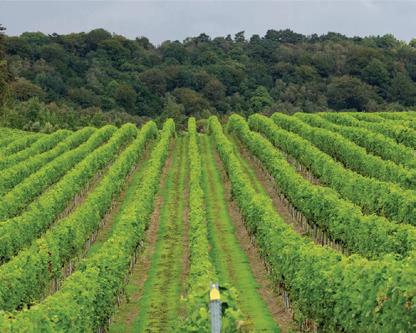
One of the new neighbours said: “I’m a great believer in finding a wine that you like and sticking with it. A sparkling I like is the Jansz, from Tasmania I think, and it’s around $30 a bottle for the non-vintage.”

“Yes,” I said, “that’s a commendable stance, but this one is about the same price. And what I like about this is the finer bead and the lovely pale straw colour combined with the citrus bouquet. I prefer it to the Jansz.”
On taste the Pirie had a clean, green-apple flavour, a crispness that delighted, with traces of the bready/brioche flavour you get in French champagne, with this wine being made in the traditional method rather than by secondary fermentation in large tanks (think of Spanish Cava) or even via carbonation like some real cheapies.
Biting my tongue, I refrained from telling my neighbours that the brioche flavour is produced from what is known as autolysis, an effect that is evident after a wine spends time in contact with
the lees post-fermentation.
Lees are not the stuff of romance: they are the dead yeast cells and other particles that are normally removed by the process of fining wine. In any event, ageing wine for a time on lees gives the bready, yeasty flavour that imparts a creaminess and complex aromas to wines like champagne.

I’d spent enough time already waxing lyrical about the wonders of sparkling wine to go down any more technical rabbit holes, but I did later tell my required dad joke: “what’s green and goes ‘rabbit, rabbit? A very confused frog.”
However, I did mention that I’d recently tasted three English sparkling wines that seem to be, like the Tassie wines, getting better and better. All were crisp and acidic, and all seemed an equal to some of the best Australian and French wines. There were a number of English sparklings that won awards in the 2024 Sommelier’s Awards including one I’d tasted a Weyborne Estate NV Family Reserve, the description of which reminded me of the taste of the Pirie: “Racy acidity alongside bitter and autolytic notes, and a textural palate dominated by green fruit”.
The only non-neighbour guest, my son, had something to say about the fact that normally colder climes, such as Britain and Tasmania, are now producing better wines: “climate change”, he said, shaking his head in disgust. We all stared into our glasses.
“If you really think that the environment is less important than the economy, try holding your breath while you count your money.” – Guy McPherson

By Joanne Madeline Moore
November
ARIES (Mar 21 – Apr 20)
Mars (your power planet) and the fiery New Moon encourage you to focus on friendships, plus your hopes and dreams for the future. The more ambitious your aspirations, the better! You’re not in the mood for superficial encounters with others, preferring deep and meaningful conversations with loved ones. But Mercury is in retrograde mode (from Tuesday until December 15-16), so smart Rams will try to be prudent, patient and persistent.
TAURUS (Apr 21 – May 21)
The New Moon heralds the rebirth of an important relationship of the romantic, platonic or business variety. But remember Mercury turns retrograde on Tuesday (until December 15-16) so financial partnerships, tax matters and deep, dark secrets must be handled with extra tact and care. Double-check everything twice, Taurus! On the weekend, someone tells you something in the strictest of confidence, but are they telling the truth - and can they be trusted?
GEMINI (May 22 – June 21)
Mercury (your patron planet) starts reversing through your relationship zone on Tuesday, so do your best to surround yourself with dependable, sensible, unflappable people. And make sure you double-check all texts (before you press send) and all appointment times (before you leave home). Sunday’s New Moon is a good time to reset boundaries and expectations in a romantic, platonic or business relationship. Keep flexible because things are constantly changing!
CANCER (June 22 – July 23)
Clever Crabs – it’s a good week to revise your diet and/or rejig your fitness routine, as retrograde Mercury and the New Moon activate your health-and-wellbeing zone. It’s important you choose nutritious food and regular exercise that you enjoy, so you can maintain healthy habits into the future. It’s also a suitable week to refine your life direction and follow your guiding star. Be inspired by birthday great Mark Twain: “Explore. Dream. Discover.”
LEO (July 24 – Aug 23)
This week a long-cherished dream may need to be re-imagined and reworked so that it better suits your current situation. Rather than seeing it as a disappointing setback, clever Cats will perceive it as an exciting new challenge. With Mars in Leo, you’re impatient to communicate about a wide range of topics, as you share creative ideas with family and friends. But, with Mercury turning retrograde, avoid spilling secrets or saying something that’s inappropriate.
VIRGO (Aug 24 – Sept 23)
Mercury (your boss planet) is in retrograde mode from Tuesday until December 1516, so resist the urge to over-analyse, over-worry, overstress and overreact. By all means think things through, but avoid getting caught up in an endless, obsessive loop. As birthday great Bruce Lee observed: “If you spend too much time thinking about a thing, you’ll never get it done.” Sunday promises a fresh start as you relax and have fun with family and friends.
LIBRA (Sept 24 – Oct 23)
Perfectionist-prone Librans love things to run efficiently and smoothly but (courtesy of Mercury turning retrograde) there’s disruptive energy about this week. So drop the carefully-planned schedule and just take things as they come. Some possible scenarios? A relationship with a lover, relative, colleague or neighbour could veer off in a confusing direction. Or something you say, text or post on social media could receive a disappointing response.
SCORPIO (Oct 24 – Nov 22)
Scorpios can have trouble trusting other people at the best of times and, this week, retrograde Mercury and the New Moon stir up your self-esteem zone. So a confidence could be broken, a loved one could let you down or an old resentment could resurface. If you don’t feel comfortable asking someone for help then don’t. Your motto is from birthday great, writer Louisa May Alcott: “I am not afraid of storms, for I am learning how to sail my ship.”
SAGITTARIUS (Nov 23 – Dec 21)
Retrograde Mercury and the fiery New Moon both activate your sign, so you’re ready to sparkle and shine. But avoid overcommitting and promising more than you can deliver. It’s time to shake off the shackles of other people’s expectations and, instead, be the real, authentic you. Your mantra is from birthday great Bruce Lee: “Always be yourself, express yourself, have faith in yourself. Do not go out and look for a successful personality and duplicate it.”
CAPRICORN (Dec 22 – Jan 20)
On Tuesday, Mercury turns retrograde (until December 15-16). Mercury is the planet of clear thinking, communication (talking, texting and writing), transport, travel, commuting, commerce, computers, media and the internet. So – when it’s retrograde – it’s not a good time to do the following things: sign contracts; start a job or business; buy a phone, computer, car or home; launch a website; install new software; go on a business trip or embark on a holiday.
AQUARIUS (Jan 21 – Feb 19)
Are you feeling confused, Aquarius? Have you been questioning your goals in life? Or does it seem as if you’ve got the worries of the world on your shoulders? Take a step back and view things from a wider perspective. Doing good deeds will leave you with a warm inner glow, so think up some dynamic ways you can help those who are less fortunate. As Yoko Ono (a fellow Aquarian) observes: “Helping yourself is connected with helping others.”
PISCES (Feb 20 – Mar 20)
This week – with Mercury turning retrograde and a New Moon – it’s time to do things with an ‘re’ in front of it. Revise, rehearse, review, remember, return, recover, reconnect. Especially in areas involving career, work colleagues, clients and customers, plus professional goals and dreams. Energy, confidence, enthusiasm and motivation will take you far, Pisces. Be inspired by birthday great Bruce Lee: “To hell with circumstances… I create opportunities.”
Copyright Joanne Madeline Moore 2024

4 What is a mark against a person for deficiency? (7)
8 Thor was the ancient god of what? (7)
9 Name an aromatic seed used in medicine, cookery, etc. (7)
10 Who founded the settlement in New South Wales, Arthur ...? (7)
11 To be standing upright, is to be standing in which manner? (7)
12 Name the bush tucker made from flour and water. (6)
14 What are growths of facial hair? (6)
18 Which term implies that which is near or on the kidneys? (7)
21 Which sea lies between PNG, Indonesia, and Australia? (7)
22 What is a sailing vessel built and rigged for speed? (7)
23 To raise to a higher degree, is to do what? (7)
24 What are very small parts or quantities? (7)
1 What is a fixed or regular pay? (7)
2 Who, with her husband, discovered radium in 1898, Marie ...? (5)
3 To regard with blind adoration, is to do what? (7)
4 Who deals in textiles and cloth goods? (6)
5 Name a widely cultivated cereal plant. (5)
6 To go in again, is to do what? (7)
7 What is a drink made of spirits and hot water? (5)
13 Which term broadly describes a communist? (7)
15 What is a more common term for otalgia? (7)
16 Who are fierce, brutal persons? (7)
17 What are sudden blazes of fire or light, used as signals? (6)
18 Name a WA racecourse. (5)
19 Kathmandu is the capital of which kingdom in southern Asia? (5)
20 Who wrote “Auld Lang Syne”, Robbie ...? (5)
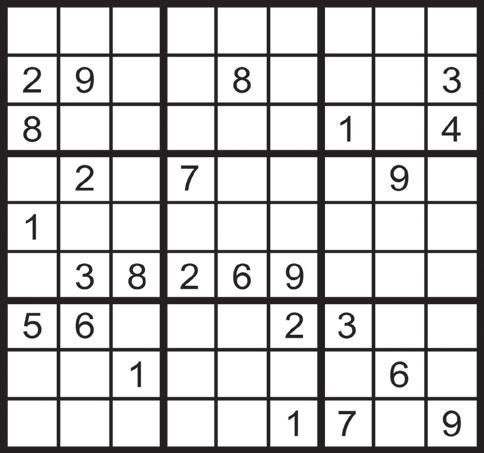


Chartered accountant GAIL FREEMAN shows a retired couple how to make the most of their assets, free of any Centrelink oversight.
Long and Ha came to see me about their Centrelink pension eligibility.
Ha said the couple was trying to work out how much age pension they were eligible for as they wanted to live comfortably in retirement.
She was already drawing a PSS pension, but Long was waiting until after our meeting to start his pension.
“Let’s start by checking your assets and liabilities," I said.
"As you know, there are two tests for the Centrelink pension, the income test and the assets test.
"Centrelink uses the test that gives you the least pension. If you fail either test you get nothing. So it's important to know what your assets actually are. You own your own city home which is worth about $3 million. You also own a country home worth $500,000. You thought that you might move there. I note you have other assets as well.”
Ha confirmed they were thinking of moving to the country home and renting out the city home, or even buying a different country home.
"Looking at your situation it seems that Centrelink would apply the assets test to you," I said.
"As your home is worth about $3 million, have you thought about whether it might be better to sell your home and then use the money for a more comfortable retirement? Because one of the things you said to me was that you were concerned about whether you could live on the Centrelink pension.”
Long said that was exactly the case.
"We don't have any children so we don’t need to leave a large estate," he said. "It would make a lot more sense if we used that money and moved into the country where we would be comfortable. We both come from the country and country living is better for us than city living.”
I replied: “Let's look at your options. If you take a Centrelink pension it would be about $50 a fortnight between you. Long, your pension is minimal.”
Long said that was because he had taken money out of his superannuation to buy the country house.
"At that time, we didn't want a mortgage on it as it was going to be our home,” he said.
I said: “If you sell your city property you will have around $2.8 million. You could then each make a downsizer contribution of $300,000 into a super fund.
"This would give you some more tax-free super and the balance you can split between you and invest and use some to upgrade your country property.
"That would give you more disposable income than if you simply rely on getting Centrelink to top up your pensions and get rent from the property. You're actually using your equity in the property in a way geared to your needs now that you’ve both retired.”
Ha said they were also hoping to be able to travel.
I said: “With this extra income, you certainly could. If you each put $600,000 into super you're able to draw $15,000 each. This is more than the Centrelink pension. Also you'd have the earnings on the remainder. Depending on the remainder, I would hope that you could earn $50,000 between you and there would be virtually no tax to pay and you'd have more disposable income. That looks a much better option for you both.”
Long said: “I hadn't realised we could do that. I would feel much more relaxed because then we'll have plenty of money to live on and we won't be subject to having to report to Centrelink on a regular basis. This feels much more comfortable. Thank you, Gail."
If you have any queries about retirement or your pension or strategies you can employ, contact the experts at Gail Freeman & Co on 02 6295 2844.
Disclaimer
This column contains general advice, please do not rely on it. If you require specific advice on this topic please contact Gail Freeman or your professional adviser.






